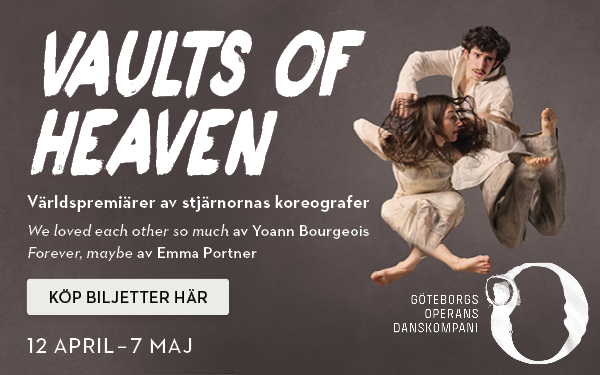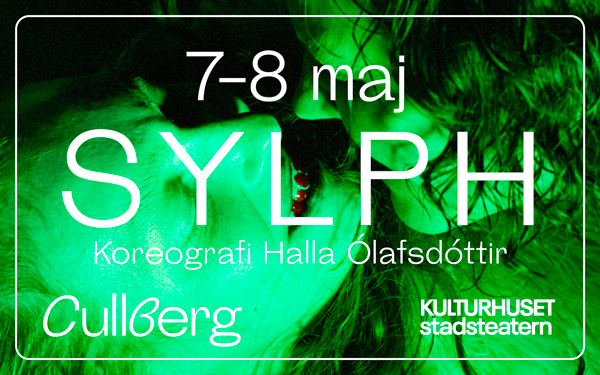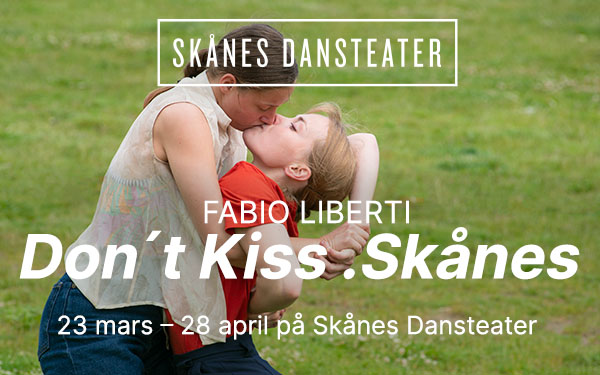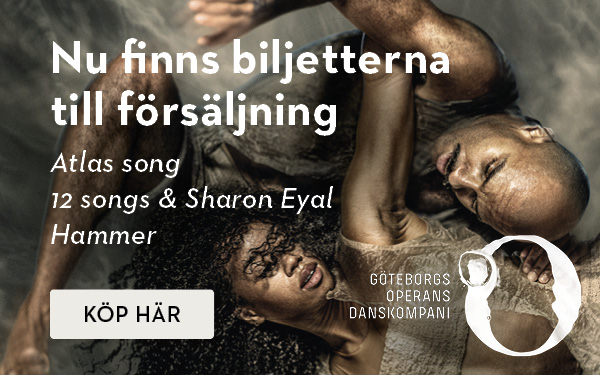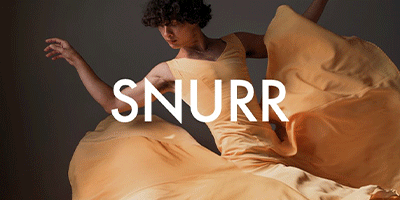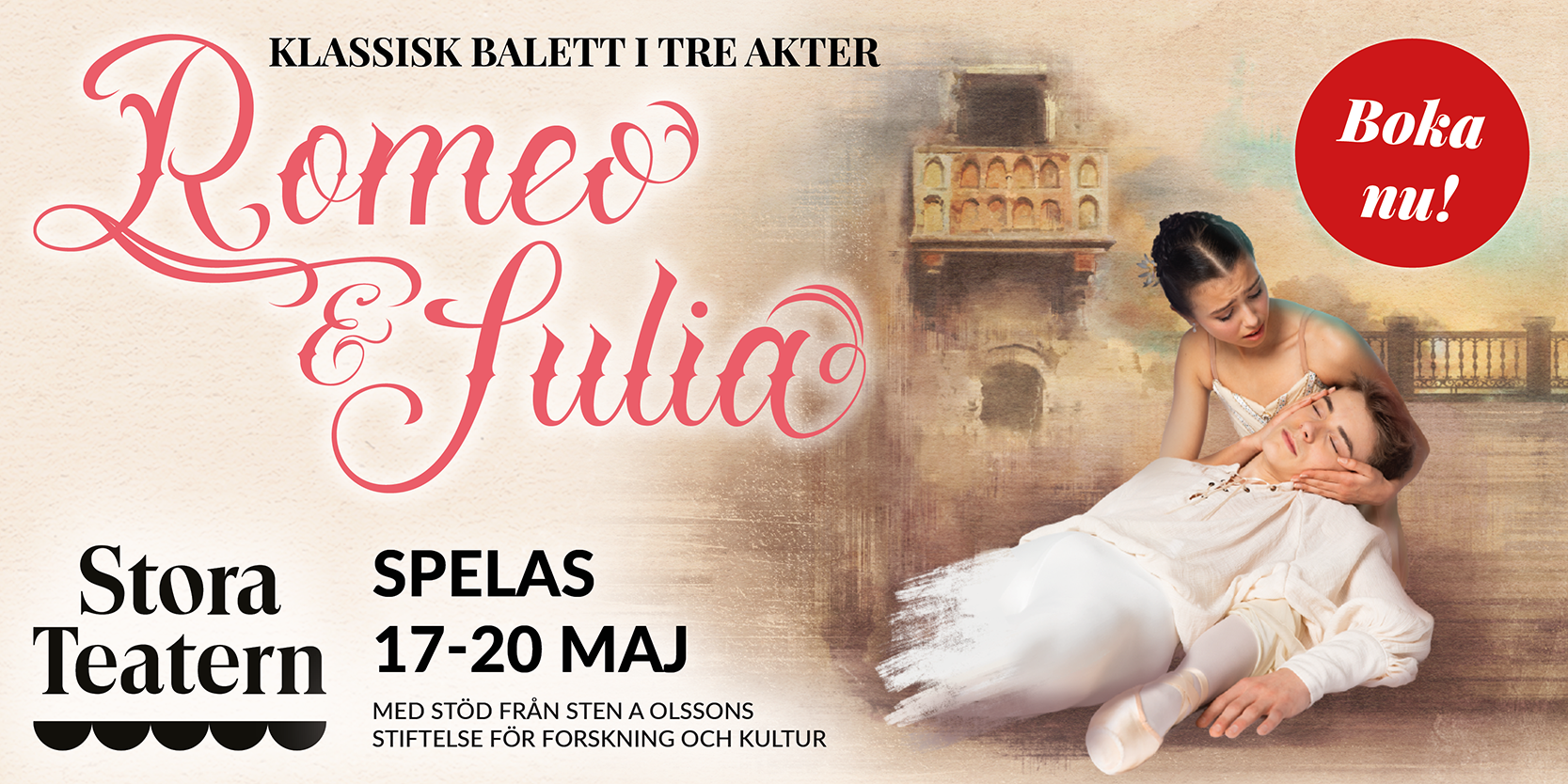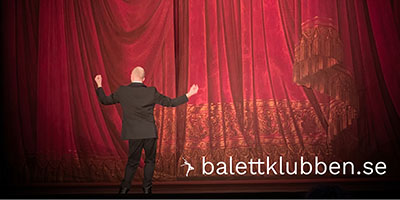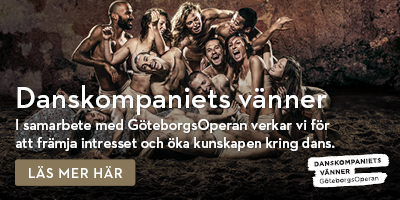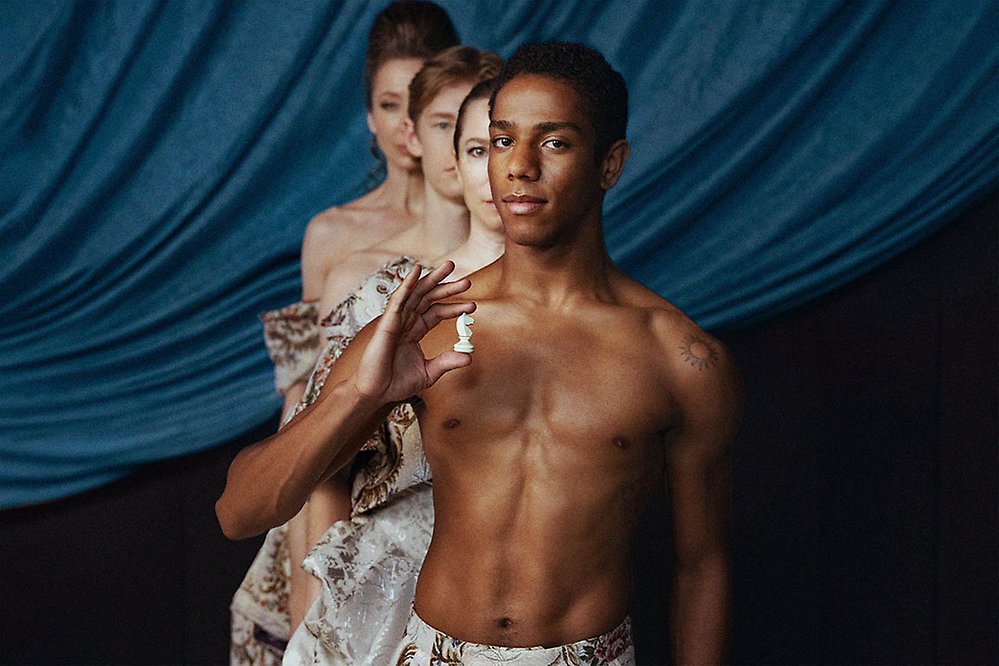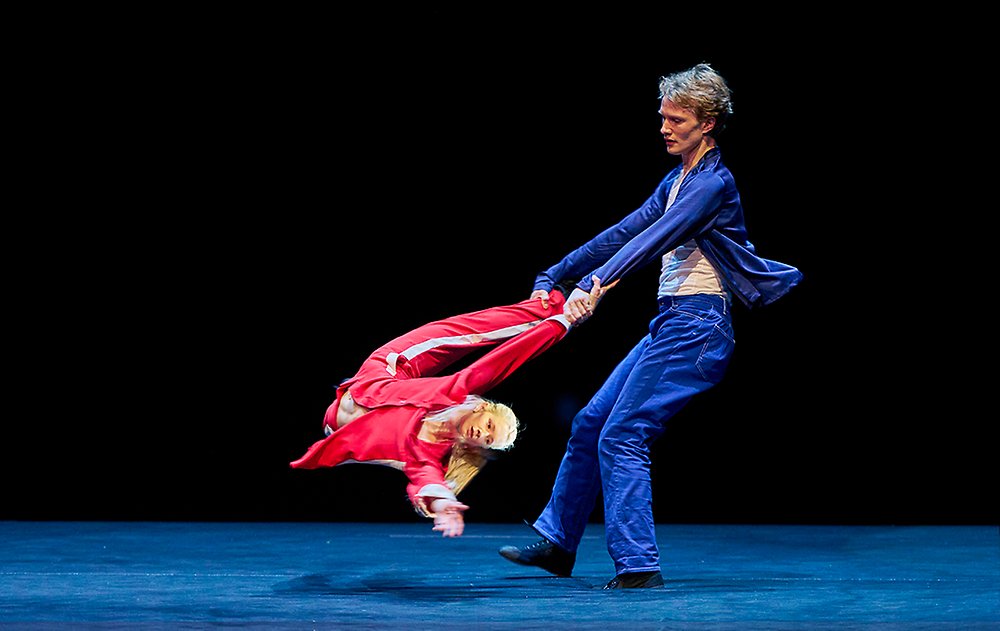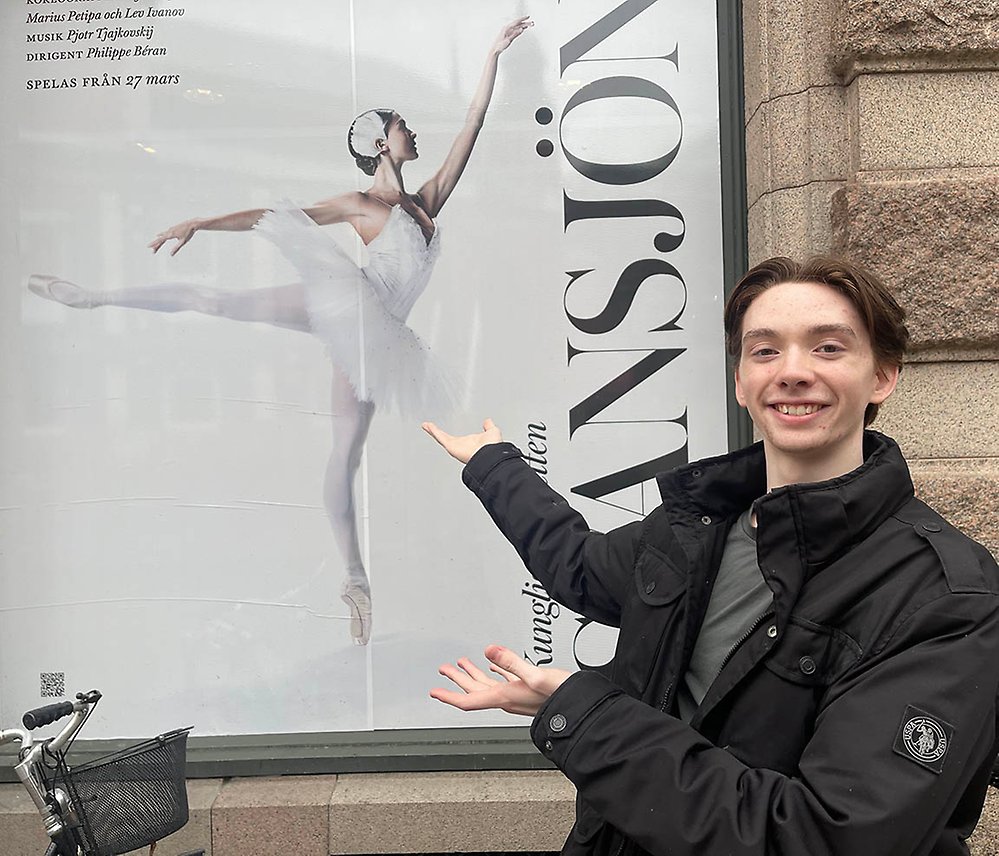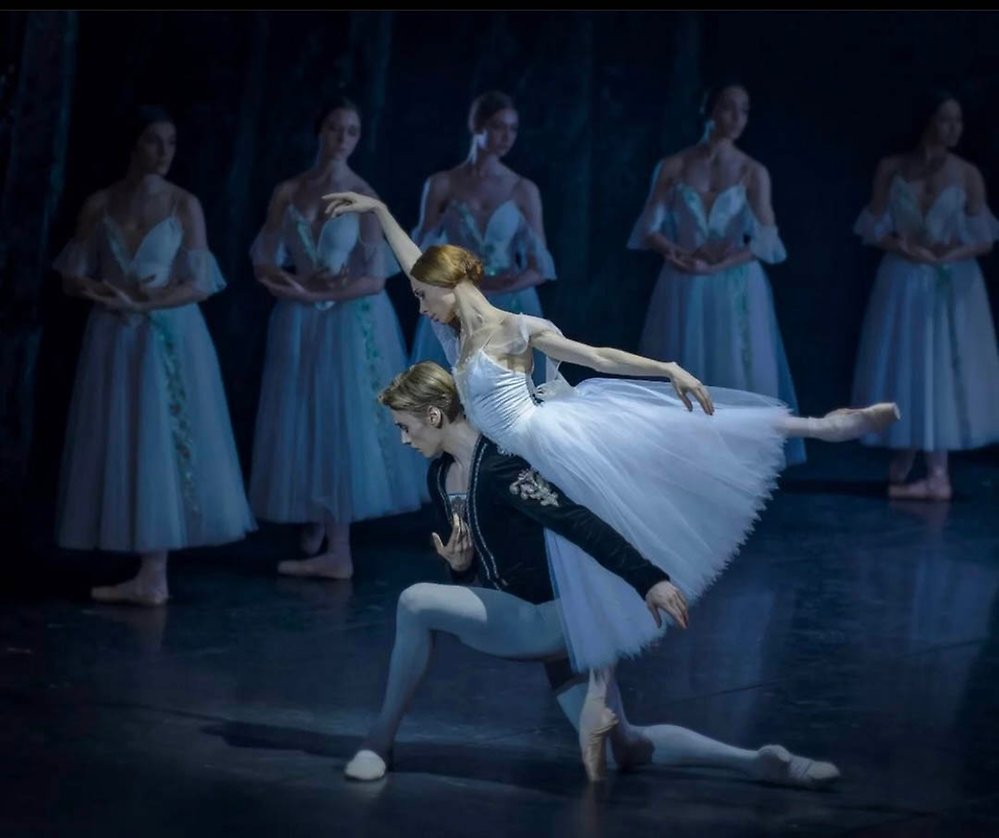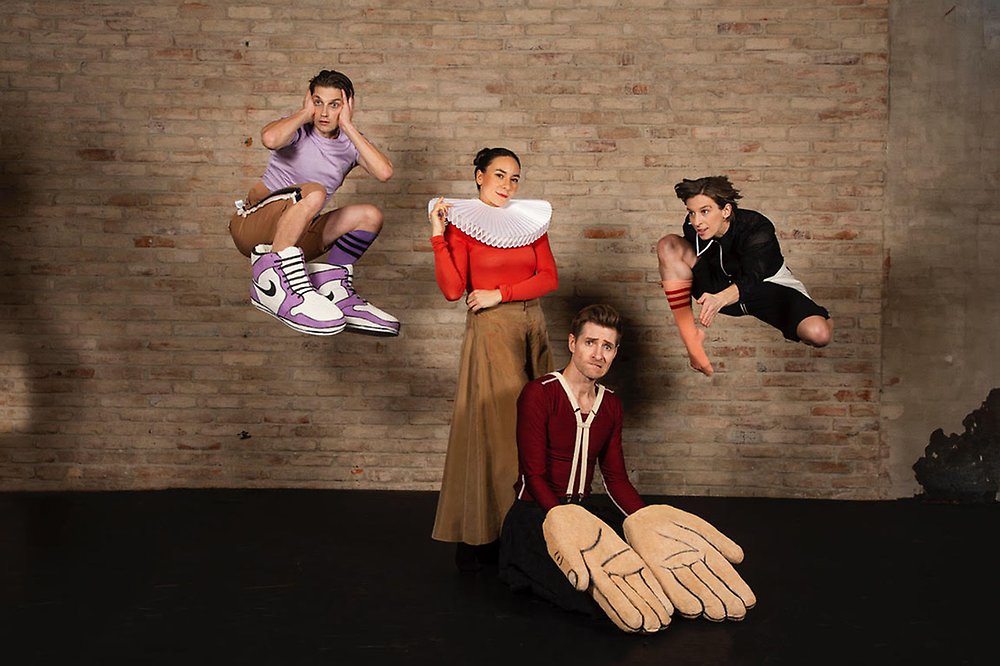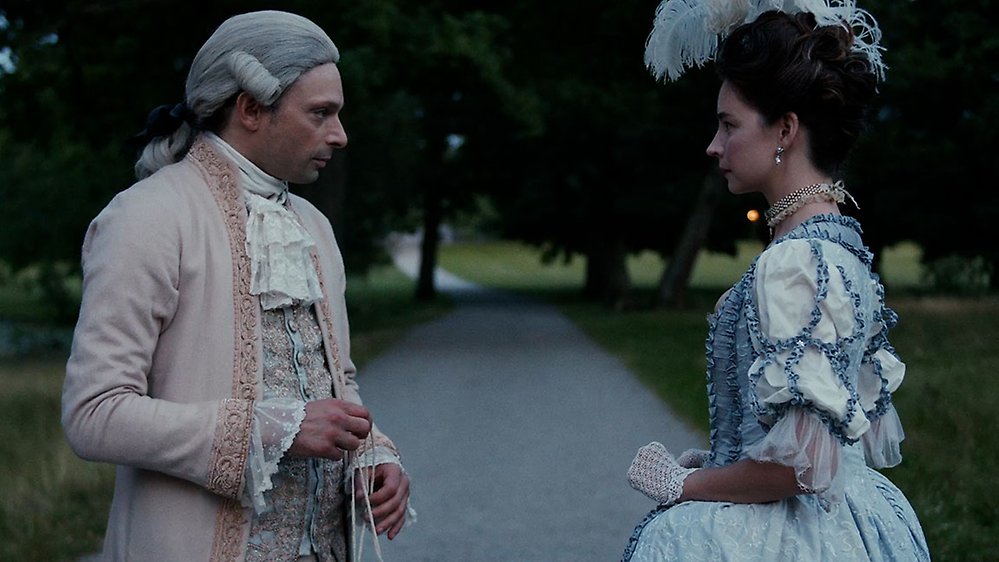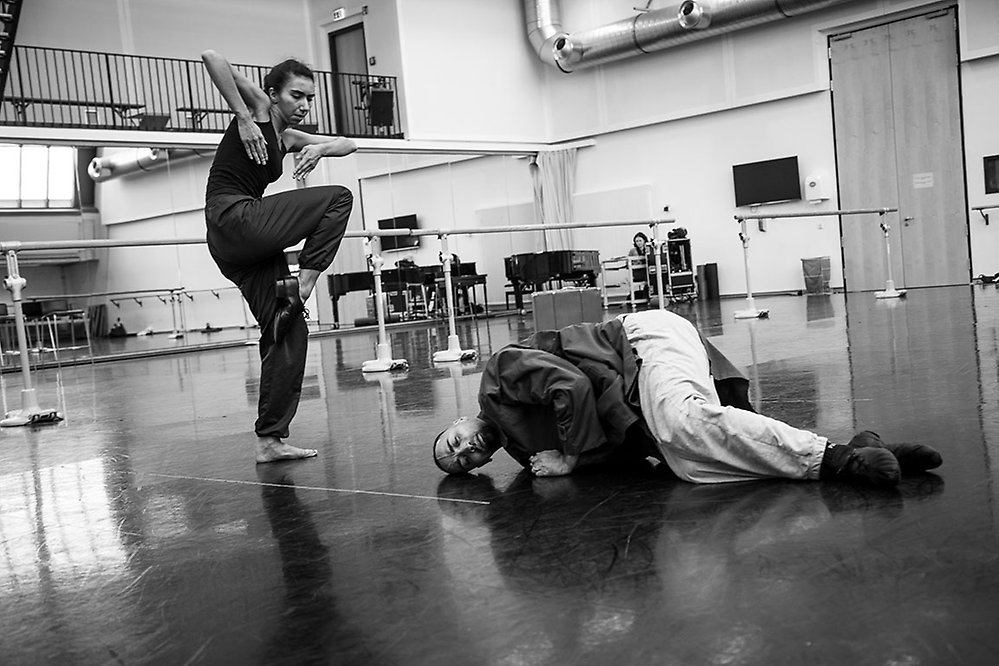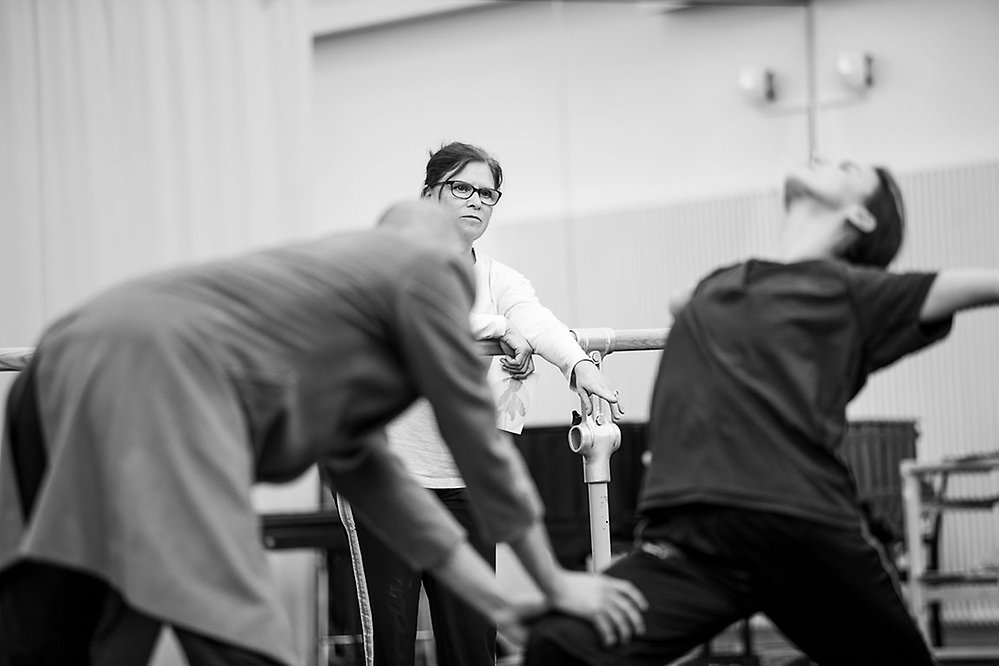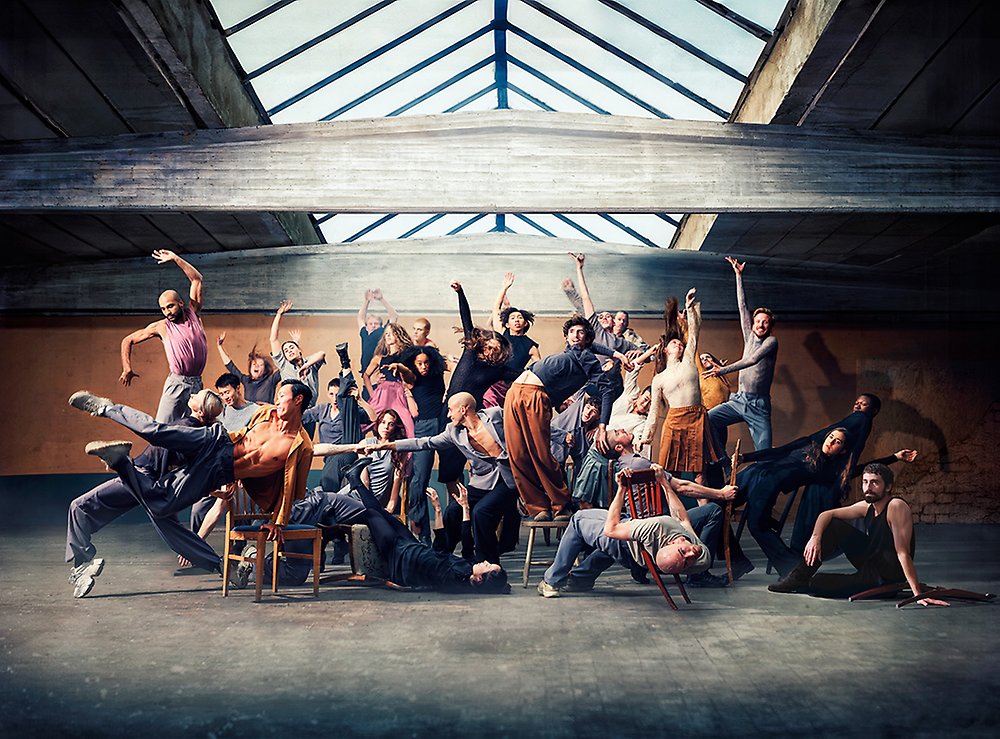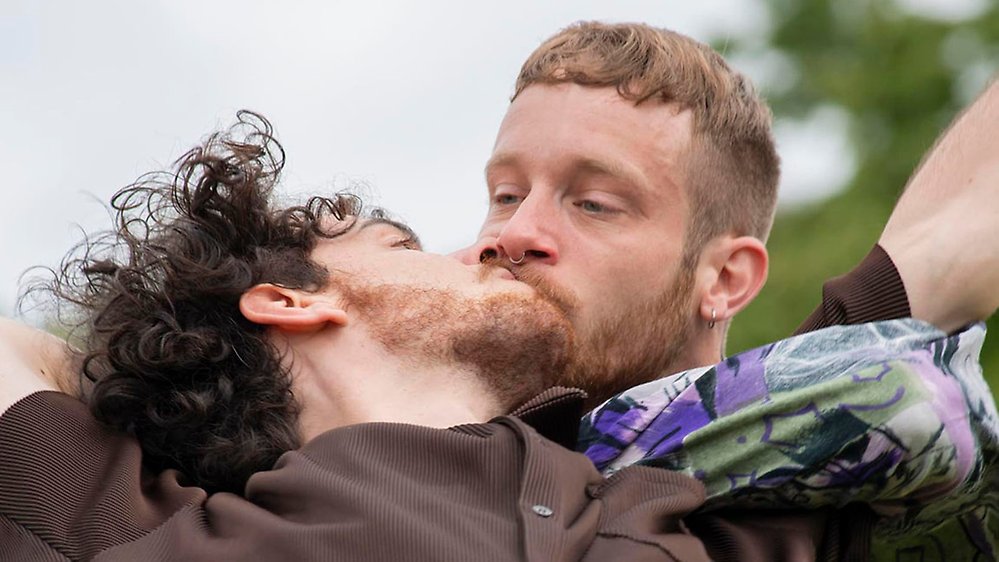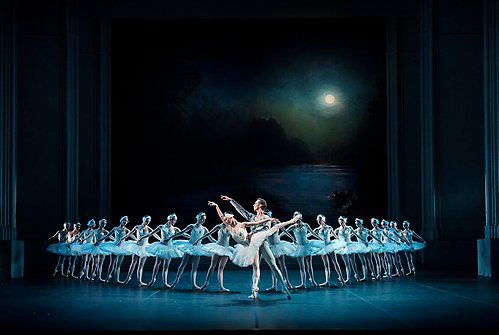Artiklar från 2008 – till idag
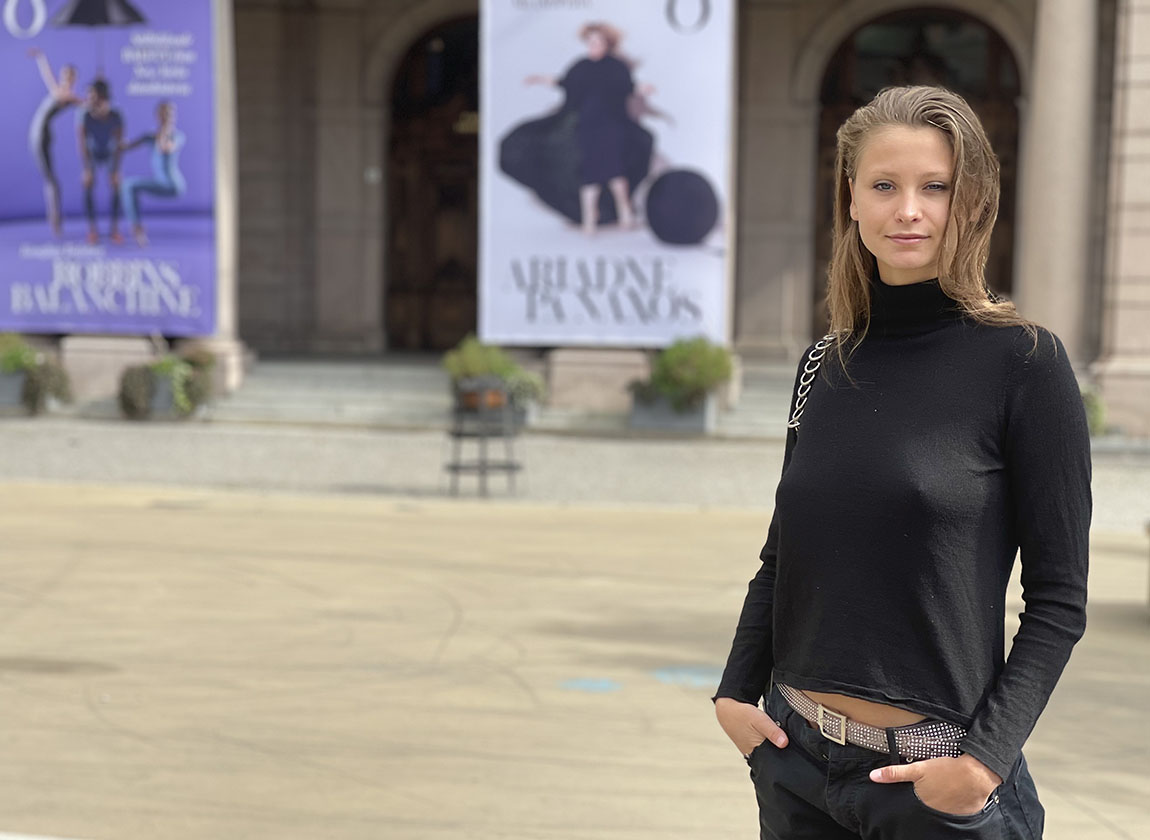
Ella Persson outside the Royal Opera in Stockholm. Photo Cristian Hillbom
Ella Persson: After the Mikhailovsky Ballet in St. Petersburg, new future awaits.
I was born in Solna 25 years ago. We were a normal family with mom, dad, my brother and sister. We lived in Bergshamra, I went to a normal school and played around a lot.
My younger brother Isaac went to ballet school two classes below me. He even got into the Vaganova School, but later chose a different path. My older half-sister is into art.
How did your interest in dance come about?
There was no such thing in my family or extended family.
At school there was a dance studio where a woman who had previously danced at the Opera held the business. I was very energetic as a child and when a couple of friends absolutely wanted to dance ballet, "then Ella can also go”. So, I hung on and we took ballet lessons a couple of times a week. This was in grades one through three, we were small girls. But I remember that at the time I found it uncomfortable to be judged and didn't really like going to these classes at all. I thought that if you're going to show off, you should choose it yourself.
But I came along when our parents thought we should go on to the Ballet Academy every Saturday. There was no compulsion in it, I just hung up on my friends. The teacher was stern, and I wasn't thrilled, just wanted to go home!
Eventually, the recommendation came to apply to the Opera Ballet School. The admission procedure I experienced as a difficult atmosphere with lots of confident children and parents.
Each step went well, and we had to wait a couple of weeks for the letter telling us that I had been accepted. Mom was happy, I wasn't that excited, but it was ok.
But why did you do everything without protesting, I wonder.
Think I wanted to please, was a little afraid of conflict.
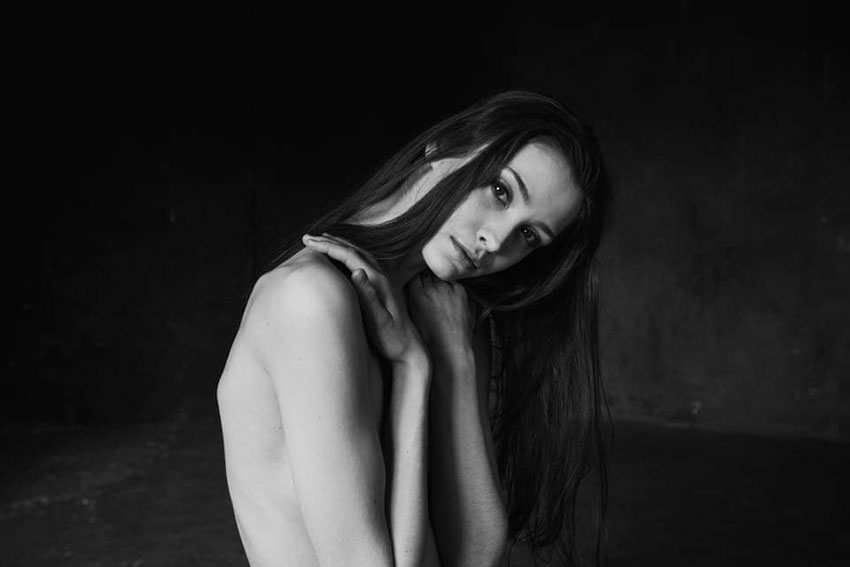
Ella Persson Photo Sergey Sherbakov
But you still must have done your best?
Well of course, I was well compliant and did what was expected of me. Two of us came in, one was my friend from basic school. She was addicted to theatre and was delighted. It wasn't that my parents decided for me, but they said: ”Shouldn't you try”, and ”it can be fun to go to school in the city.” So, my friend and I started the 4th year in Högalidsskolan. It was scary with such a big school, so many people after our little Bergshamra school.
Ella describes that she didn't feel any enthusiasm. There was even more discipline than earlier, and she tells how a teacher said that "you should long for the class/lesson". Ella just looked at her watch and wished it would end...
But something must have worked, I object.
Pierre de Olivo taught acrobatics and character dancing and he was also strict and disciplined but in a different way, hard to explain! I felt it was discipline "in the right way", without performance anxiety. He was a very good educator.
In fifth grade, a turnaround seems to have taken place.
There was an extremely good atmosphere in the class, boys and girls talked to each other and there was no fuss. I enjoyed myself more and more and started to like working hard for the first time. I noticed that I could work hard and liked that feeling!
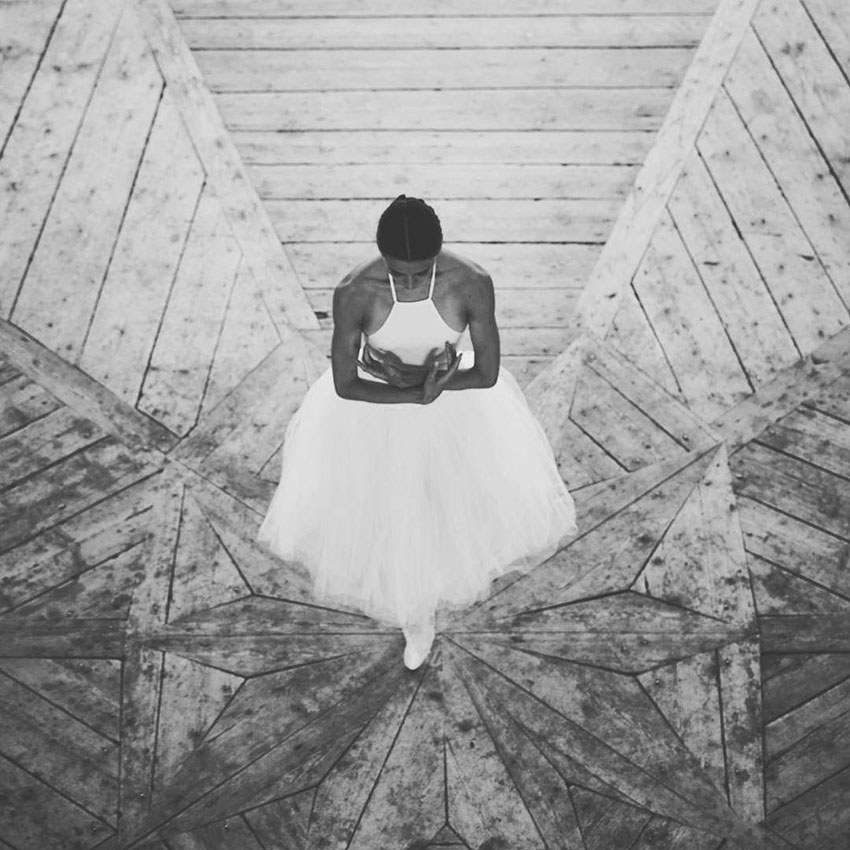
" She became aware of the standard out in the world and found herself becoming more mature". Photo Charles Thompson
When you are at that age that you understand why you should do different things and then the training start to makes senses.
Now Ella mentions the word attention, which I understand has been a key for her. Performance is still sensitive and challenging for her, but now she selected to participate in performances at the Opera. She starts to experience the atmosphere on stage and in the wings. Still, stress for exams and other things at school is hard, but leaving theory lessons and being at the Opera meant something important. It was inspiring to sit in the wings and watch the dancers, the atmosphere.
She also gained attention when Pierre de Olivo selected her for a performance at the school, and when she dances at the "Stora Daldansen", a competition held in Dalecarlia in Sweden.
During this time Ella took extra lessons. It was a bit "under cover" to sneak off to Johanna Björnson's studio and teacher Olga Kliapovskaya. Among other things, Olga gave a program of strength that meant a lot, and Ella underwent a rapid development, just during the years the body is incredibly malleable.
Ella says: Olga took advantage of my opportunities; she helped me tremendously. Her lessons were amazing, and I understood my potential better.
The YouTube gave us the opportunity to look at other countries' schools, compare themselves with their students and what they had achieved and see other dancers. She became aware of the standard out in the world and found herself becoming more mature.
Olga trained me in the Russian style and it suited me very well, says Ella. I became fond of Russian ballerinas and with them the Russian style, simply got hooked on it.
The Royal Swedish Ballet has been great, appreciated and highly admired, at that time the school's teaching was now good enough and I stand for that criticism, says Ella seriously.
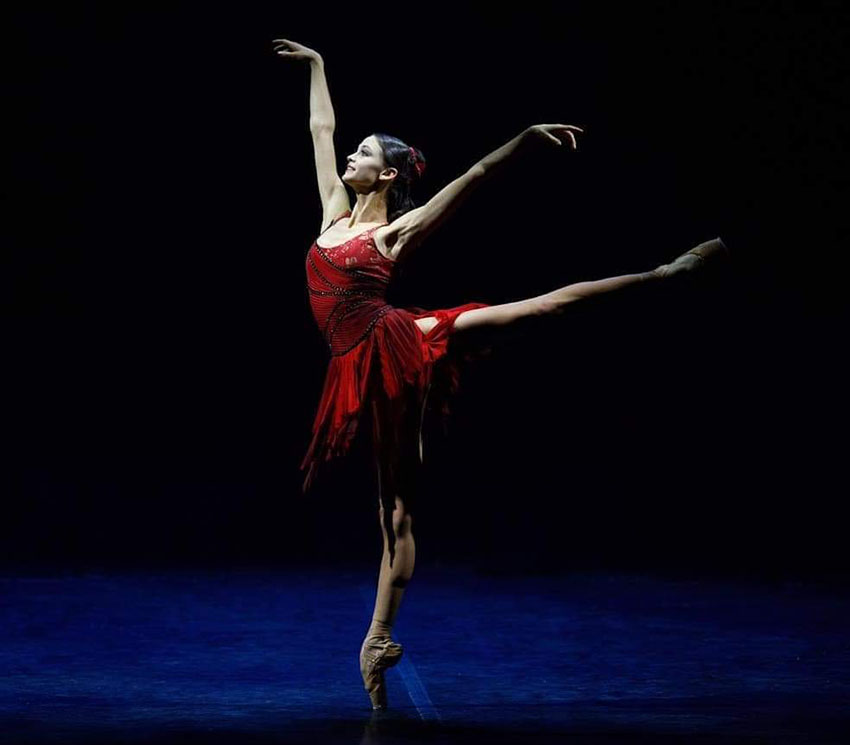
Ella Persson as Valeria from Spartacus. Photo Charles Thompson
Dreams begin to take shape.
At that time, she becomes passionate and things start to move. When she graduates from gymnasium, Ella did auditions for the Cranko Schule in Stuttgart. At that school there are many Russian teachers. She was accepted when she was only 15 years old. Ella tells how a strong vision was formed: to become a ballerina and to dance in Russia.
Before the following summer, Ella Persson reads about a summer course in Mikkeli, Finland, with Vaganova master classes. She becomes enthusiastic and immediately signs up. Ella receives attention, a teacher offers a place at the famous Vaganova School in St. Petersburg, a great opportunity. But there were complications. The time aspect of visa application and other formalities delays the process. Ella was instead allowed to start the following year.
Ella moves to Stuttgart, which becomes a stopover, but a good one. The first year away from home, with new friends and new experiences. The school and the class were very good, she made great friends and had fun. There and then, there was doubt about Russia, a hesitation. When it was time to make up her mind, Ella describes how she had tremendous decision anxiety.
Still, she explains, was it a goal she'd had for so long, would she really be able to let it go? No, she concluded, she must try her dream.
In the autumn of 2013, Ella has reached the age of seventeen and was starting at the Vaganova School in St. Petersburg. She was promoted to a higher class and therefore finished the school after only two years.
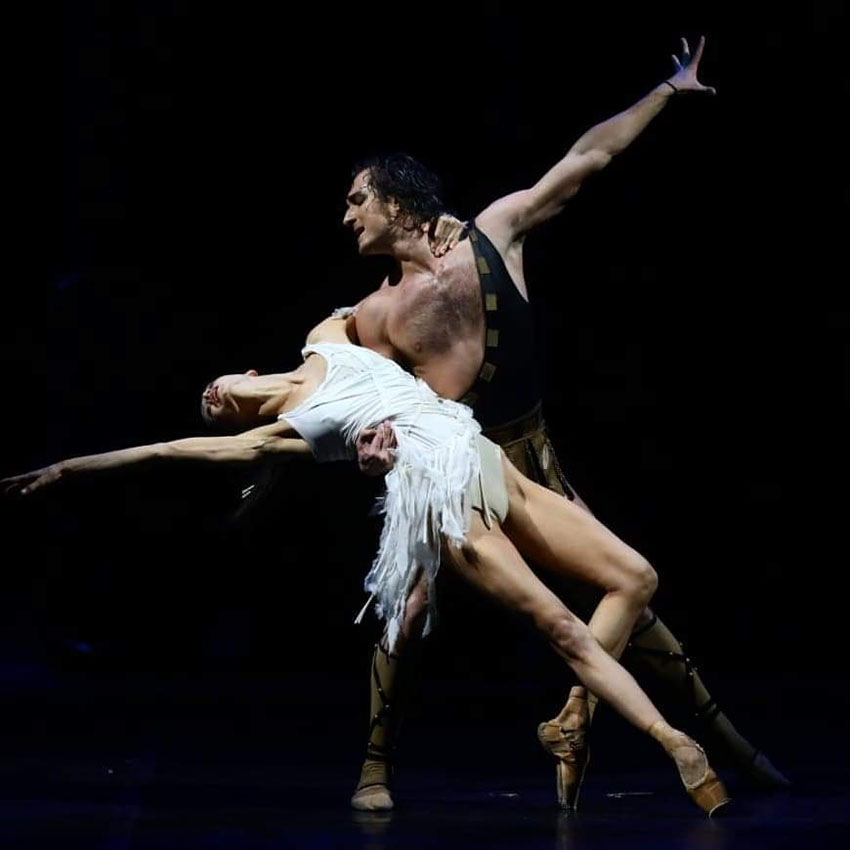
Ella Persson in a Pas de deux from Spartacus. Photo Charles Thompson
What was your first job?
It was in Saint Petersburg at the Mikhailovsky Company. But, earlier, I had signed on to jobs in Munich, at the Bayerische Staatsbalett. Timing for auditions are different in Europe and in Russia and when I was offered a job in Russia, I took it. Breaking the contract in Munich was not popular. But the dream had to be tried!
Ella has just turned 19 when she starts her employment.
You have now lived in St. Petersburg for a long time. What was your life like there?
The first year, life was tough and hard. It was a harsher atmosphere, everyone is more straightforward, especially in the theatre but also in the community. I think Russians would like to test who you are. If you can pass the test, the press releases a little bit. In the theatre there was an extremely high tempo and, of course, fierce competition. On the positive side: a bustling big city, lots to explore. Challenging tasks at the theatre, like Giselle for example!
What about the language, do you speak Russian?
Yes, I speak Russian. International dancers like me got Russian lessons. There were maybe six of us in the beginning, today there are more.
How was your housing situation?
At first, I stayed at the boarding house for a few months, that opportunity existed for both opera singers and dancers. But after a few months, in the middle of the first season, I moved to an apartment. There are homes to be found in St. Petersburg, the market is not like in Stockholm, but it's a lot about contacts.
Is it true that an injury prevented you for a period?
You probably mean when I was in the Vaganova School. I lacked the solid foundation I had needed at the time and with sloping floors and heavy tasks I overworked my hip. The training was solid with repertoire and character dance (professional folk dance) which was enormously demanding. I had an injury and I went home to rest and rehabilitate, but a lot was lost that season. It was my first major setback. I was home about six weeks and could barely walk. Then I was depressed for the first time in my life. Everything had gone so well, I had gotten attention at school, so it hit me hard.
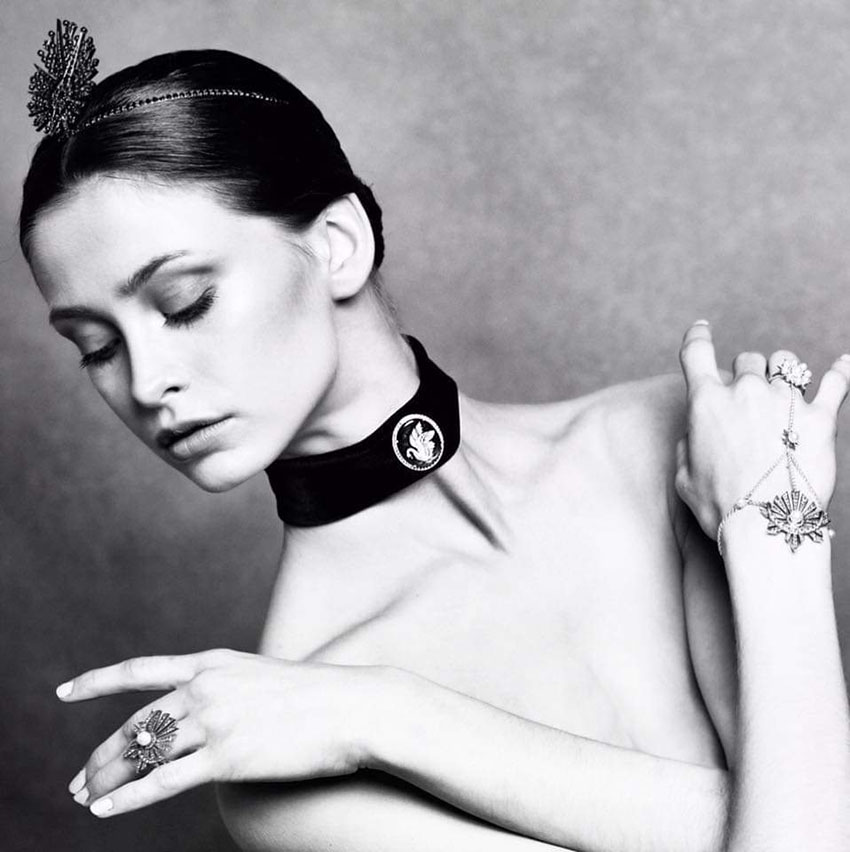
Ella Persson. Photo Max Moden
Tell us about the roles you've been given, how they've developed you, and what you like most about dancing?
Every big role has of course meant a lot. The first season the ballet master Messerer saw me and gave me tasks. Giselle, Cinderella, La Sylphide, I was a street dancer in Don Quixote and a special role in Spartacus.
The first season was important. Giselle came so early, in my first year and the challenge showed to myself that I could do it. The strength, the nerves and the design. Understanding that I'm doing something I enjoy.
Spartacus probably developed me the most, it was acrobatic, a lot of "acting" during eleven minutes of tough partner work. It made me technically and mentally strong. I loved doing it.
Now you have left St. Petersburg. What does your life look like now?
I'm in Stockholm. Decided to choose security and I left Russia a couple of weeks after the war against Ukraine started. I had contact with the consulate and the situation felt uncertain. I wanted to be close to my family and chose to go. Now I want to move forward with my career, I've been seven seasons in St. Petersburg. During the pandemic, I spent a lot of time in Sweden. I have taken classes with the Royal Swedish Ballet before the summer break and work extra to keep fit, because one class a day is not enough. One needs to be on stage and do performances. Everyone has had a really hard time during the pandemic. It was emotional to find myself in the ballet studio where it all kind of started, I'm grateful and appreciate it a lot.
Five months have passed since you left Russia. What are your feelings about it today?
It's a kind of a sorrow. I couldn't finish my time there as I would have liked. But now there's something else ahead. I'm curious about new styles.
Do you think you would have stayed in St. Petersburg if the circumstances had been calmer?
Thoughts of moving on were already there at this time, but of course I intended to stay the whole season! If it had been the case, I would have been in top shape to give myself the best in auditions. Now, instead, it has been a tough battle to keep fit. Small muscles, for example in the feet, can be lost quickly.
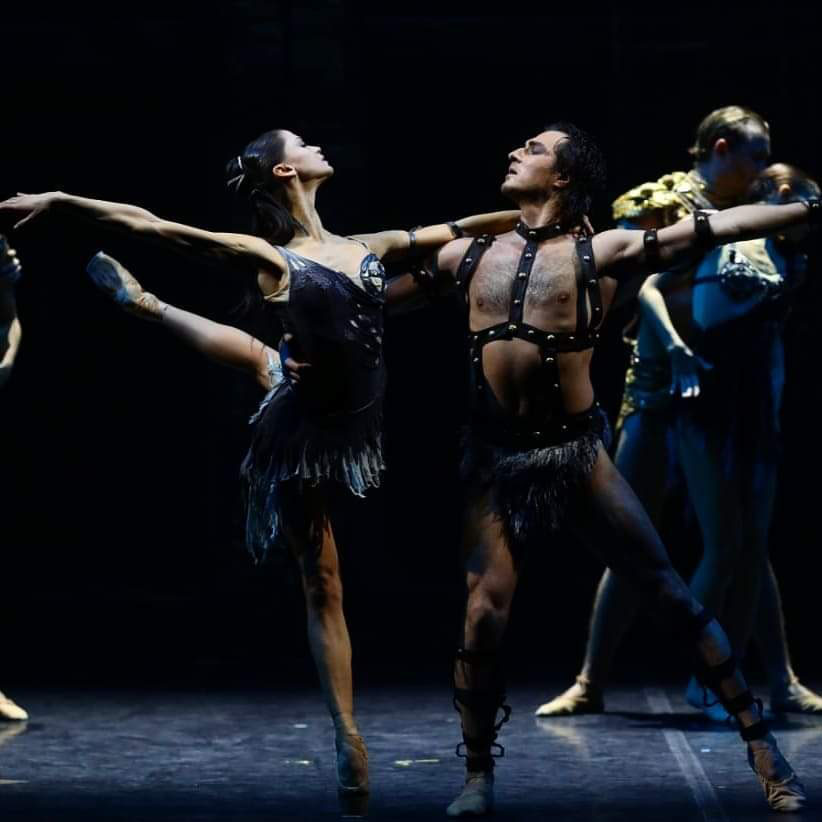
Ella Persson as Valeria in Spartacus. Photo Charles Thompson
Do you think you have lost contact with Sweden; do you still have friends here?
Well, I've lost some contact, but I still have a couple of friends. I was a very short time in Sweden until the corona hit us, but during the pandemic I spent more time here.
How has your summer been so far?
In many ways struggling. In my situation, I have been in a development phase on several levels with myself, it is stressful.
Thoughts on the future?
In the first place, it is Europe where I want to be. There are currently no contracts in Stockholm. I have experienced the Russian ballet during my period there and gained a broader view of life. Now I feel ready to broaden my horizons, it means new repertoire, new coaching, new cities, explains Ella, who is now 25 years old.
When you moved to St. Petersburg, it was to fulfil a dream. What do you dream of now?
To feel good, to develop and continue dancing! To combine a glorious life with a wonderful profession.
To the extent that you have any free time, what are your interests?
When I'm free, I do things that make me feel good. I don't have a specific hobby, but I like to relax, meet friends, go out and have a drink and be out and experience nice environments. And I write a lot, I always have.
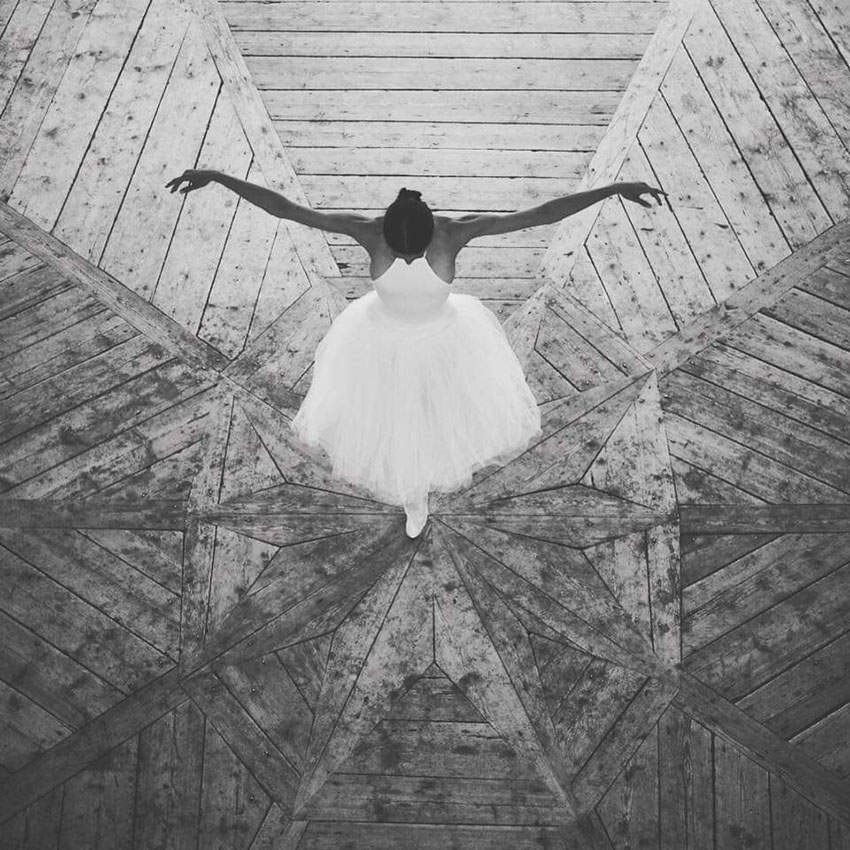
Ella Persson Photo Charles Thompson
How was your position in Russia? You were on TV from time to time?
I'm basically shy, Ella says, but I got attention! She admits that before premieres, there used to be interviews and advertising posters.
How was life in Russia when you left?
I can feel sorry for the Russians. I have seen a lot of development in the country, it has been easier to travel, and many speak better English. It is sad that the country is closing again. Russians are hospitable and interested, many in the younger generation know what is happening and are inspired by the West. But there are concerns and risks...
As a young girl you were some withdrawn. Still, you have chosen one of the most demanding professions in the world?
Yes, says Ella, I know. It was a combination of when I felt like pushing myself hard and the experience of being on stage that made it worth all the rest. That's how it happened.
Marie Louise Waldenström
Stockholm
-
Gustavia – berättelsen om Sveriges okände prins
Nyskriven balett om Gustav Badin och hans uppväxt vid hovet, i koreografi av Pär Isberg och regi av Amir Chamdin. Urpremiär på Kungliga Operan s stora scen den 18 oktober....
-
Yoann Bourgeois tillbaka till Göteborgsoperans Danskompani med ett sant styrkeprov
Efter fyra år är det dags igen för den franske koreografen Yoann Bourgeois att återvända till Göteborgsoperans danskompani. Denna gång för verket We loved each other so m...
-
Spot on Darrion Sellman – dancing the leading role Siegfried in Swan Lake
In August last year Darrion Sellman arrived to Stockholm and joined the company. Darrion says: “It has been a change to come to Stockholm. A vibrant city, small but calme...
-
Kalle Wigle nyutnämnd solist vid Staatsballett i Berlin
Dansportalen gratulerar svenske dansaren Kalle Wigle som nyligen utnämnts till solist vid Staatsballett i Berlin.
-
Succéduo skapar nytt efter segertåg i Sverige och Europa
Intervju Hugo Therkelson och Tobias Ulfvebrand
-
40 år senare: En dansares triumf över tidens utmaningar
Förra sommaren ringde telefonen hemma hos Heléne i Kungsbacka. I lördags den 16 mars gjorde hon comeback på scenen efter nära fyra decenniers frånvaro och dessutom debut ...
-
Fart och kunnande på Pro Dance Galan 2024
Gamla operabyggnaden vid Bulevarden är ett Dansens Hus även om ett nyare Dansens Hus numera finns i Helsingfors, det också i centrum. Båda har sin publik, och båda behövs...
-
Svenske dansaren Kalle Wigle har stora framgångar i Berlin
Kalle Wigle är utbildad vid Kungliga Svenska Balettskolan och vid Royal Ballet School i London. Han fick anställning vid Operan i Stockholm 2016. Från hösten 2023 är han ...
-
Timulak/Portner två olika verk men med flera beröringspunkter
Från och med 9 februari och nästan en månad framåt dansar Kungliga Operan i Stockholm Totality in parts av Lukás Timulak och Bathtub Ballet av Emma Portner . De båda koreo...
-
På jakt efter det fullkomliga: nationens skickligaste dansare och – smultron!
Balettpedagogernas förbund ordnar vartannat år i Finland en nationell balettävling, i år 20-21 januari. Ett råd av balettkonstnärer med bakgrund som meriterade dansare ha...
-
Young Choreographers en föreställning där dansare från Kungliga Operan koreograferar
Tisdagskväll på Kungliga Operan i Stockholm och det är premiär för Young Choreographers. Dansare från ensemblen får chansen att pröva egna idéer och koreografera sina kol...
-
Operans VD Fredrik Lindgren: På sikt vore det fantastiskt att få ett nytt Operahus i Stockholm
Kungliga Operan är en 250-årig kulturinstitution i hjärtat av Stockholm. Över 500 anställda levererar hyllade föreställningar med utsålda hus. Dansportalen har samtalat m...
-
Från Svenska balettskolan i Göteborg till ungerska Statsoperan i Budapest
Det började med 6 år på Svenska balettskolan i Göteborg med start i årskurs fyra för Mattheus Bäckström och Auguste Marmus . Mattheus gick ut 2017 och hade då blivit antag...
-
Joseph Sturdys verk Lucid Episode inleder nyårsgalan på Kungliga Operan
Vi befinner oss på Kungliga Operan. Det pågår repetition med två dansare som är med i Joseph Sturdy s verk Lucid Episode som inleder själva nyårsgalan den 31 december.
-
Göteborgsoperan sjunger in julen med En Julsaga
Göteborgsoperan avslutar december månad med nypremiär på musikalversionen av Dickens En julsaga . Föreställningen är breddad med humor och medmänsklighet. Adams julsång bl...
-
Nötknäpparen, nypremiär på Kungliga Operan i Stockholm efter fyra års uppehåll
Det är nypremiär av Pär Isbergs Nötknäpparen på Kungliga Operan i Stockholm. I salongen sprids julstämningen och publiken får vara med om en dansant och virvlande berätte...
-
Giovanni Bucchieri – en konstnärlig kameleont
Det är premiär för filmen 100 ÅRSTIDER . Upphovsmannen har gått från dansare till multikonstnär. Möt regissören Giovanni Bucchieri i en personlig intervju med Dansportalen...
-
”Mycket talar för att vi inte kommer att kunna vara kvar där vi är nu,” säger Hans Lindholm Öjmyr, ny chef för Dansmuseet
Hans Lindholm Öjmyr är filosofie doktor i konstvetenskap och har skrivit en avhandling om scenografi på 1800-talet vid Kungliga Teatern/Operan. Hans har tidigare varit av...
-
In a heartbeat, ny världspremiär på Göteborgsoperan
In a heartbeat bekrivs som ett pulserande dansbubbel och på Göteborgsoperan är det nu världspremiär allhelgonaafton på stora scenen för Hofesh Shechter s verk Wild poetry ...
-
Le Corsaire, svensk premiär på Kungliga Operan med virtuos dans och teknisk skicklighet
När Kungliga Operan för första gången ger Le Corsaire bjuds det på en dansfest. Verket som hade sin urpremiär på Parisoperan 1856 kommer till liv och publiken får möjligh...
-
New talents join the Royal Swedish Ballet
Eleven young dancers join the Royal Swedish Ballet company this season. We are thrilled to see them on stage! On October 27, this season's grand premiere of Le Corsaire w...
-
Där låg onekligen ett skimmer över Gustavs dagar
I Livrustkammarens visas den största satsningen på flera år på en tillfällig utställning i samarbete med Kungliga Operan – öppnas 20 oktober, Teaterkungen: Prakten, makte...
-
Attityder som uppskattades
I Drottningholmsteaterns déjeunersalong gavs i september in innehållsrik, högklassig presentation av ett forskningsprojekt som genomförs på Kungliga Musikhögskolan och fi...
-
Spot-on Kentaro Mitsumori, dancer with the Royal Swedish Ballet
Kentaro Mitsumori has been a member of the Royal Swedish Ballet since 2017. We have seen him in many roles, in Swan Lake, Cinderella, Don Quijote, The theme and variation...
-
Kalle Wigle-Andersson får stipendium från Jubelfonden
Kalle Wigle-Andersson: Jag är utbildad och diplomerad vid Royal Ballet Upper School, London 2016. Innan dess gick jag på Kungliga Svenska Balettskolan 2006-2014. Sedan mi...
-
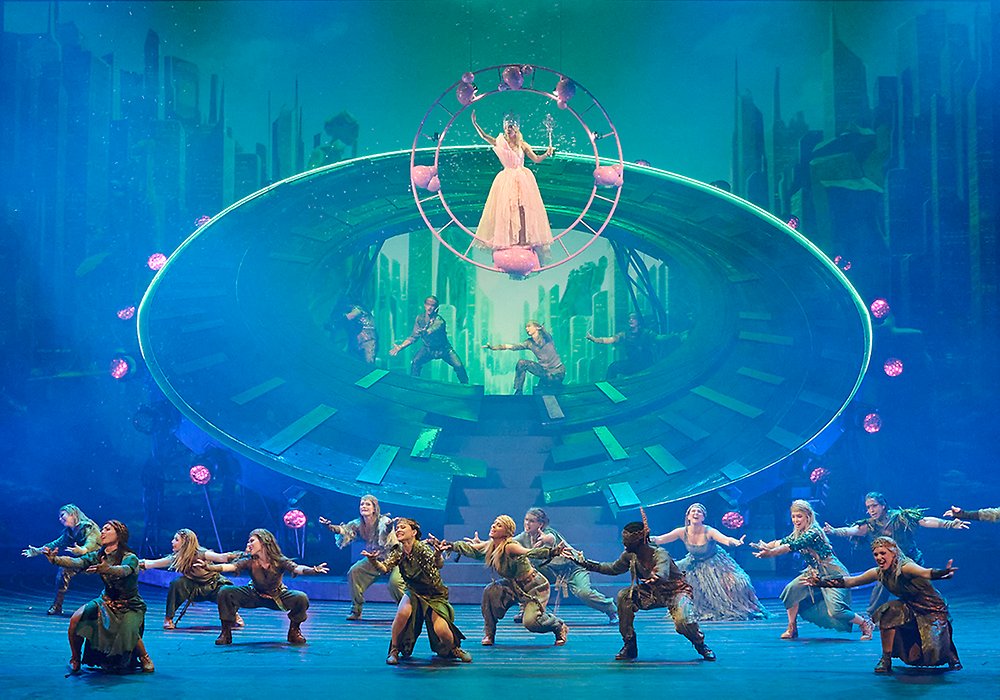
Wicked, musikalen om häxorna i Oz
Göteborgsoperan inleder sin höstsäsong med den mytomspunna succémusikalen Wicked. Exakt tjugo år efter Broadwaypremiären 2003, sätts den nu upp för första gången i Sverige.
-
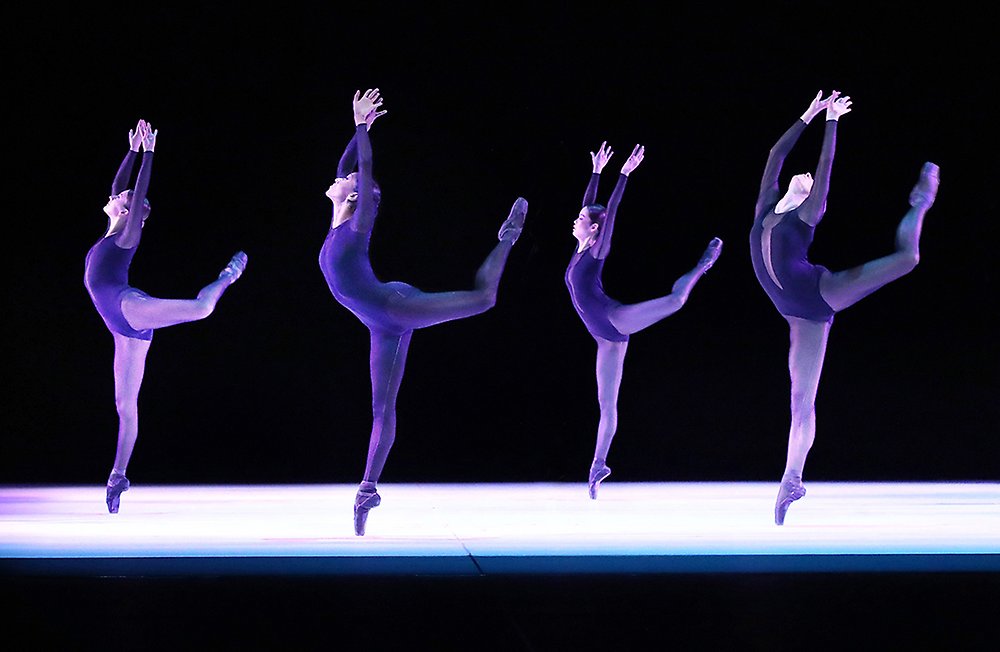
Balettgalan i Villmanstrand är sensommarens succéevenemang
Balettgalan i Villmanstrand vid Finlands östra gräns gavs i år för 12:e gången och var igen en succé med både nationella och internationella dansare. Galans grundare och eldsjäl Juhani Teräsvuori hade...
-

Möte med Fredrik Benke Rydman om ”The One”
Det är mannen från dansgruppen Bounce, koreograf till egna versioner av Svansjön och Snövit bland mycket annat. Jag träffar Fredrik Benke Rydman på en liten thaikrog mellan repetitionspassen.
-
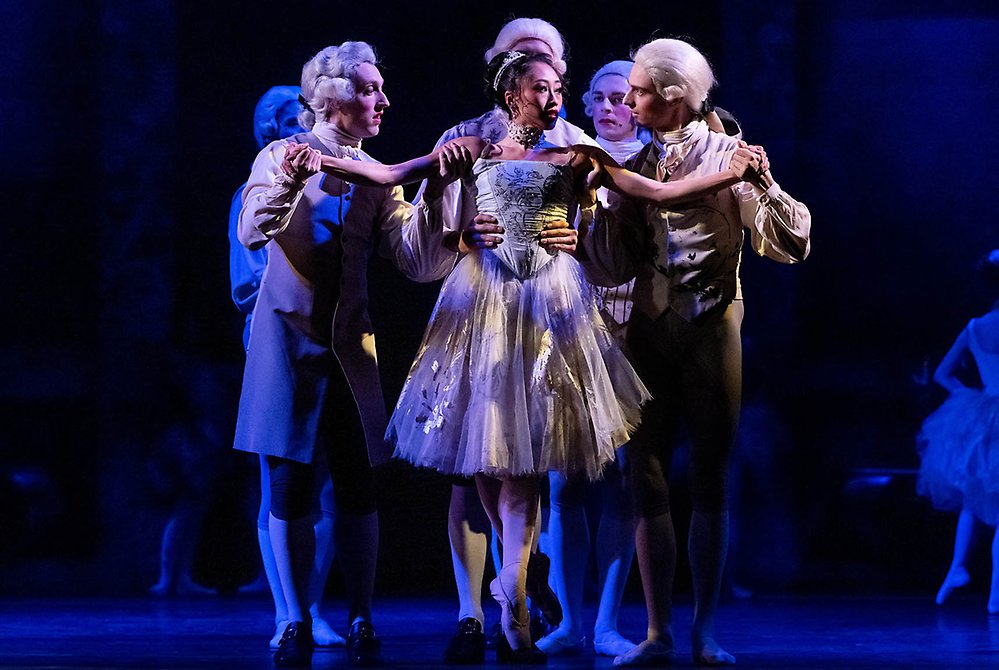
“A new look at it” – Lady MacMillan about Manon with the Royal Swedish Ballet
As part of the 250-year jubilee program of the Royal Swedish Opera and as a tribute to the long-lasting cooperation between the Royal Swedish Ballet and world-renowned English choreographer Sir Kennet...
-
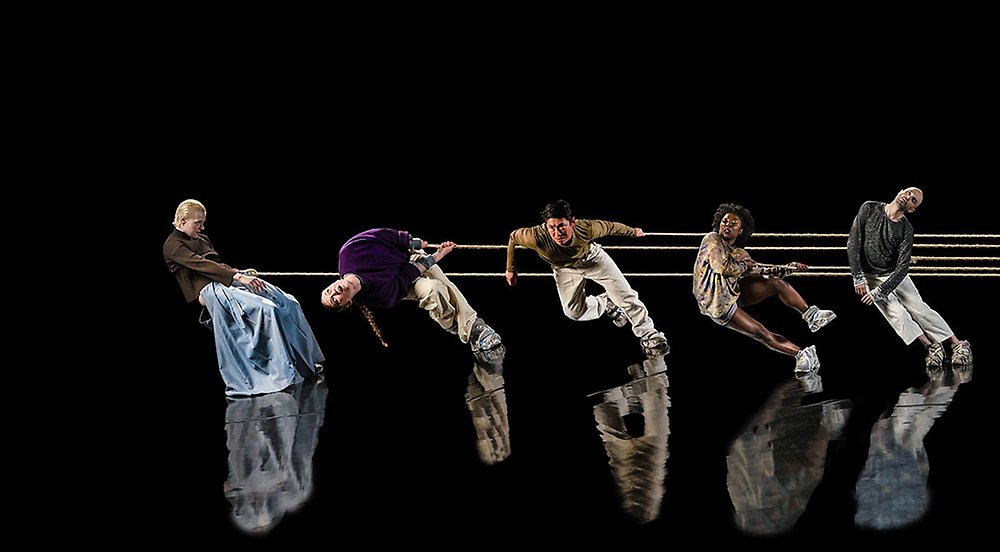
Urpremiär av episkt dansverk på Norrlandsoperan
Den 1 september bjuder Norrlandsoperan på säsongsuppstart för dans med urpremiär av den episka föreställningen Remachine signerad koreografen Jefta van Dinther . Ljus, ljud, röst, koreografi och scenog...
-
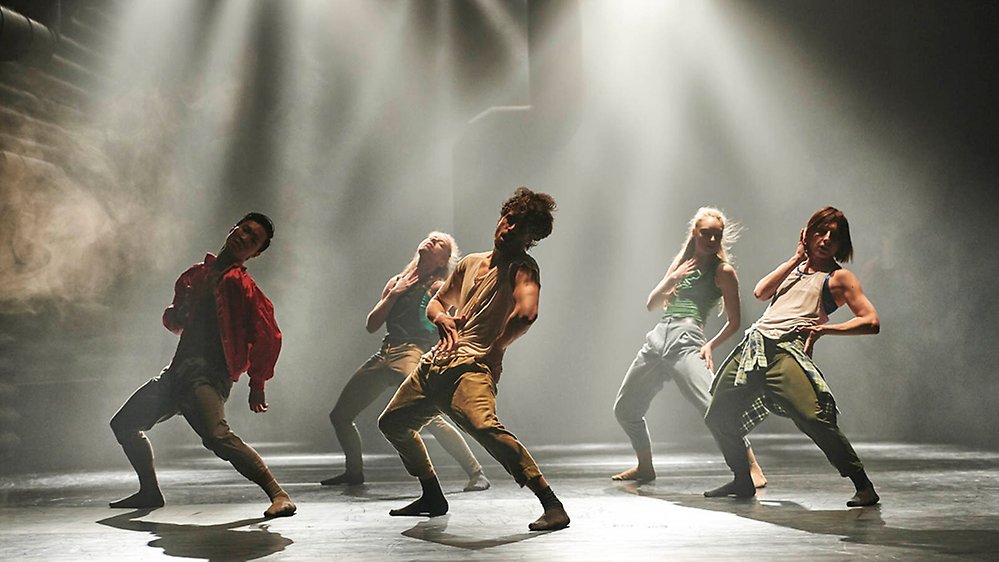
Contemporary dance av Hofesh Shechter på GöteborgsOperan
Danskväll med intensiv klubbfeeling, smittande glädje och en upplevelse som börjar redan utanför operahuset.
-
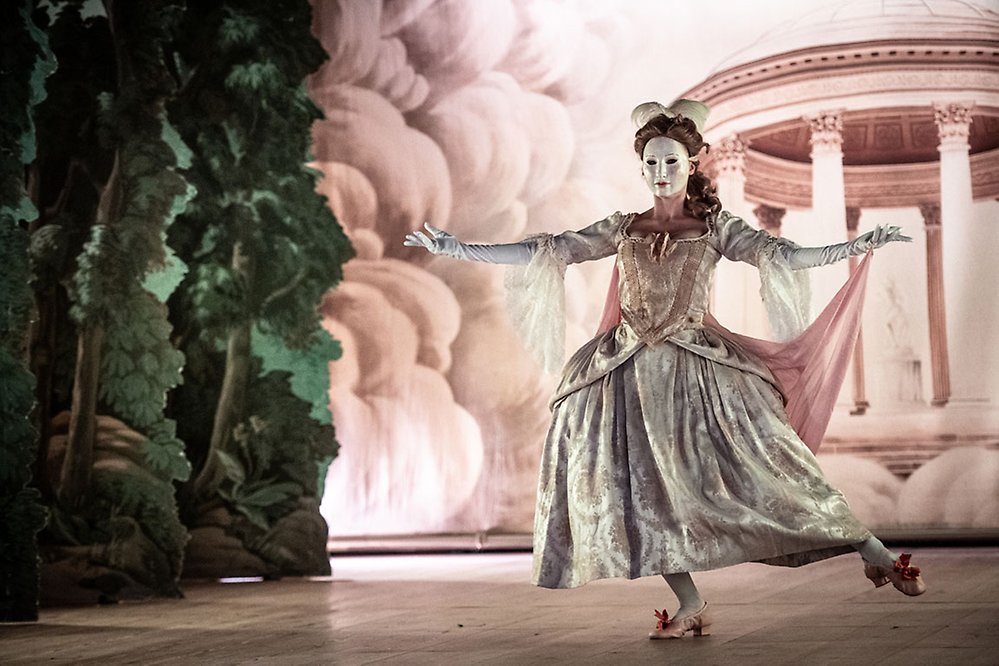
Julia Bengtsson – internationell barockdansös från Sverige
Höjdpunkten under årets förnämliga Opera- och musikfestival på Confidencen var iscensättningen av Jean-Philippe Rameaus opera Dardanus . I en annan föreställning, A Baroque Catwalk , gjorde Julia Bengts...
-
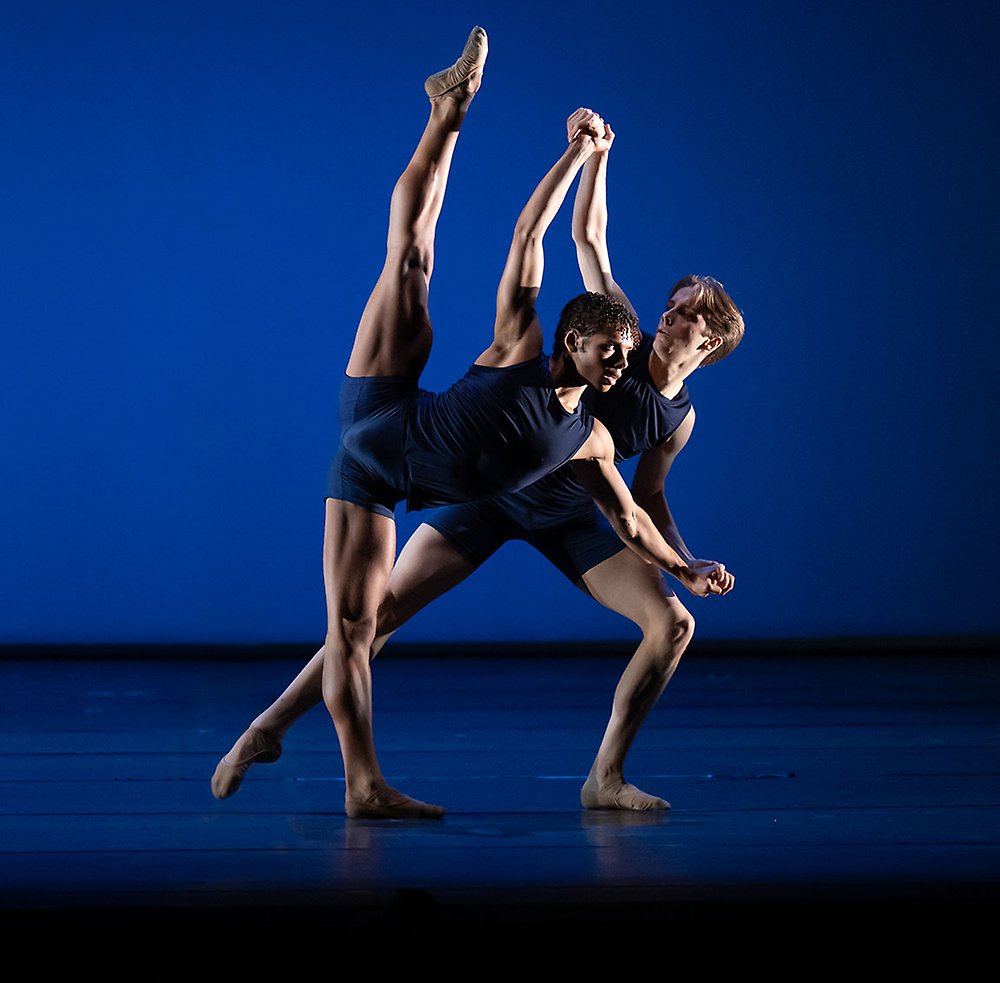
The Royal Ballet School Delights
Written on the faces of the dancers as they spin and leap in the ecstatic final moments of the Grand Défilé , is the smile that says, ‘I did it’. It’s what I look forward to year after year and it neve...
-
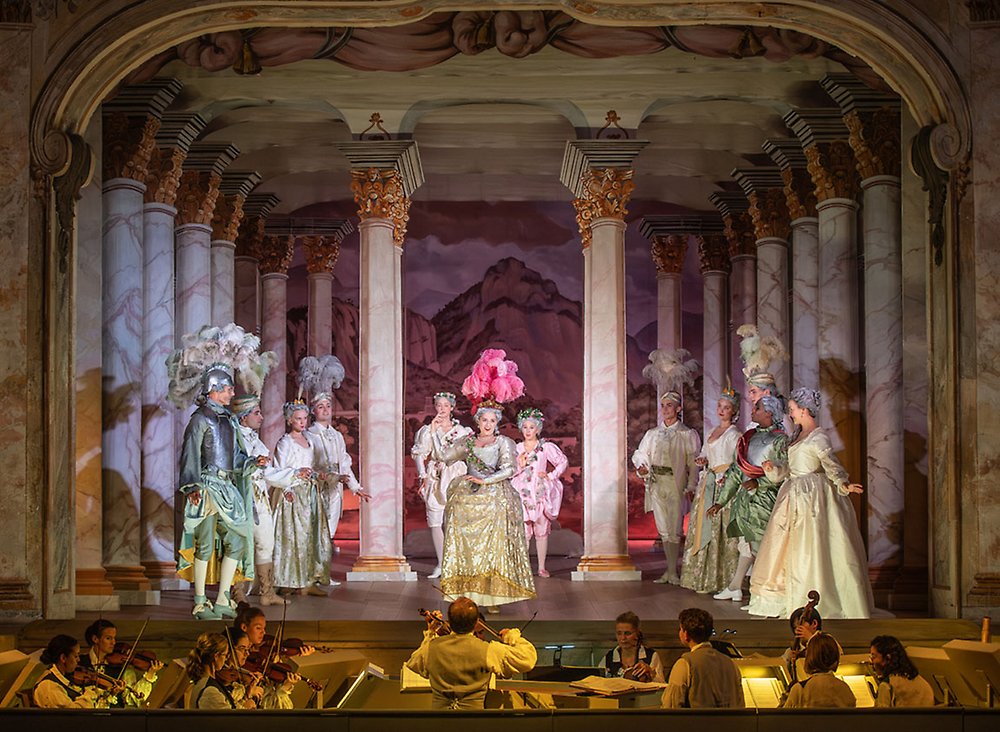
Ett barockt spectacle på Confidencen
Confidencen Opera & Music Festival inleds den 27 juli med Jean-Philippe Rameaus mästerverk Dardanus, som genom ett gediget arbete får sin nordiska premiär på Sveriges äldsta rokokoteater – 284 år efte...
-
Möt Vivian Assal Koohnavard dansare vid Staatsballett Berlin och aktivist
I Berlin träffade jag och arbetade med Vivian Assal Koohnavard. Vivian fick sin dansarutbildning i Sverige och Tyskland. Hon har varit anställd vid Berlin Staatsballett sedan 2018. Där deltar hon i de...
-
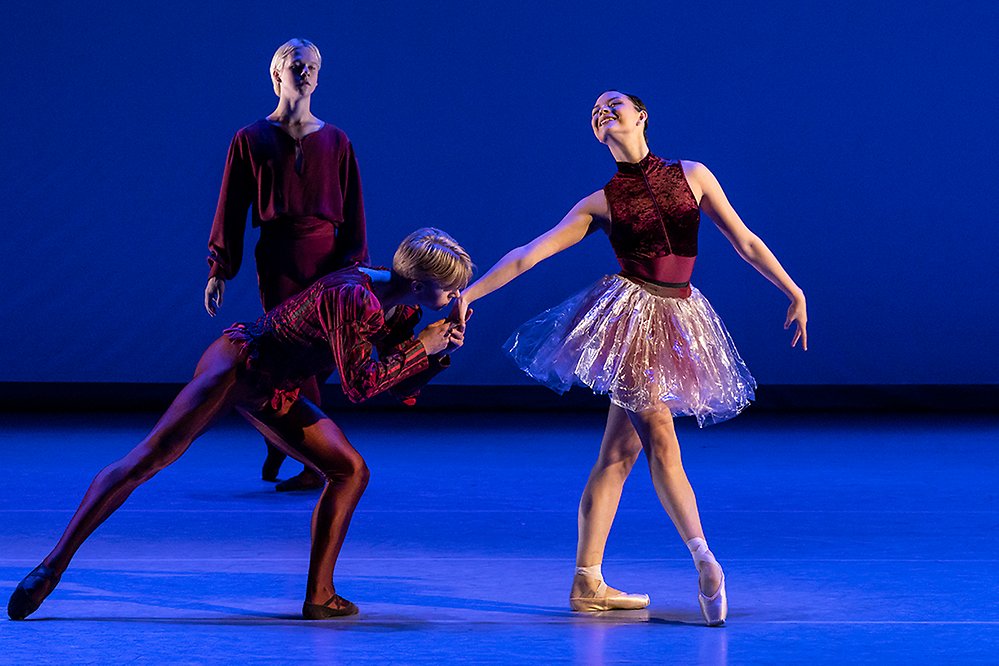
Peter Bohlin om Kungliga Svenska Balettskolans uppvisningsföreställningar
Skolårets sista föreställningar på KSB var uppdelade i fyra program. Några koreografier var storartade, andra inte. Här, mot slutet, ett försök att resonera om anledningar till detta.
-
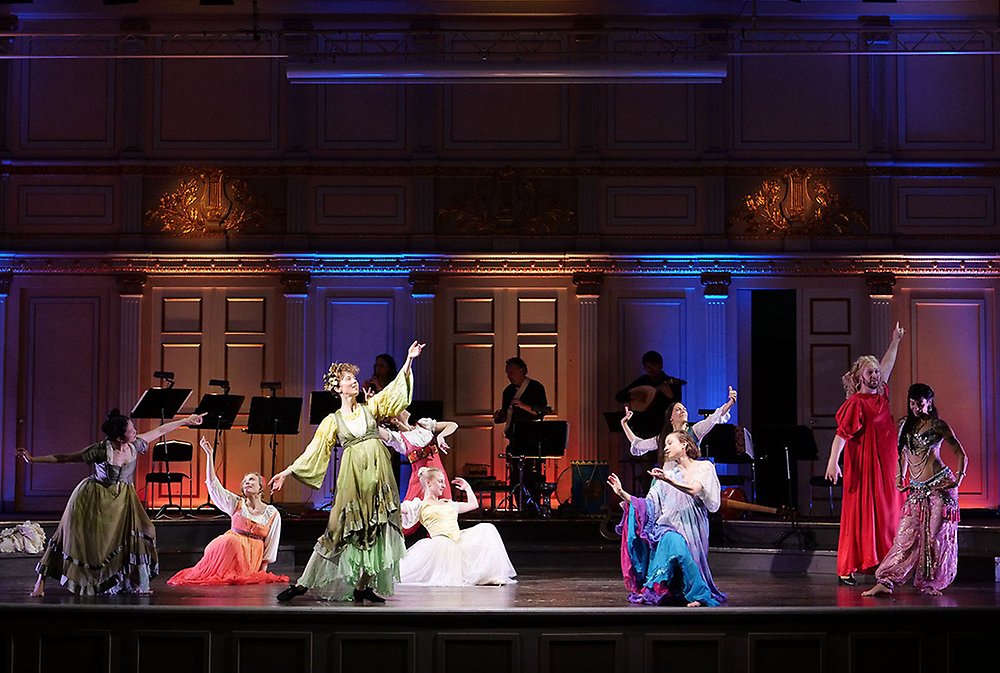
Dans i Stockholm Early Music Festival
I 2023 års version av Stockholm Early Music Festival , den tjugoandra i ordningen, ingick två dansföreställningar. I fablernas värld , en kort musikalisk och dansant barockföreställning med Folke Danste...
-
.jpg)
Suite en Blanc av Estoniabaletten med fina danssolister
Jag hade möjligheten att två gånger se en ny balettafton med två verk. Black/White innehöll “Open Door ” av polskan Katarzyna Kozielska och Serge Lifars kända och genuina Suite en Blanc . Den sistnämnda...
-
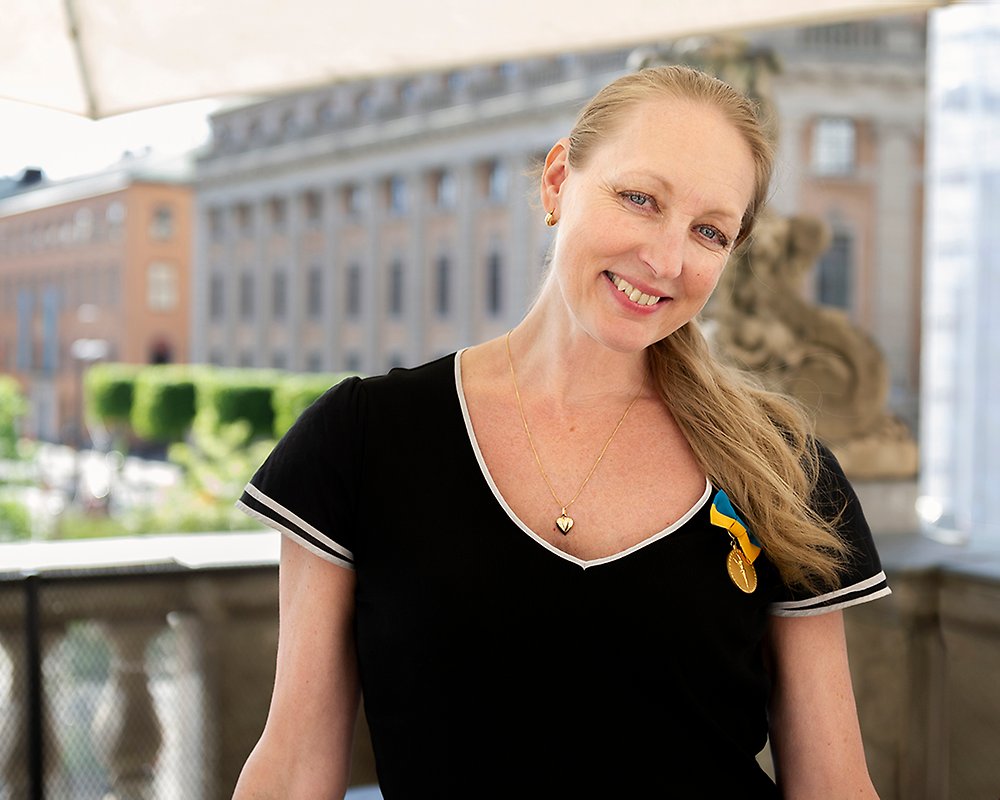
Marie Larsson Sturdy Carina Ari Medaljör 2023
På Carina Ari-dagen 30 maj tilldelades Marie Larsson Sturdy Carina Ari-medaljen för hennes mångåriga och engagerade insatser inom Dans i Nord – en vital verksamhet som under mer än 20 år har främjat m...
-
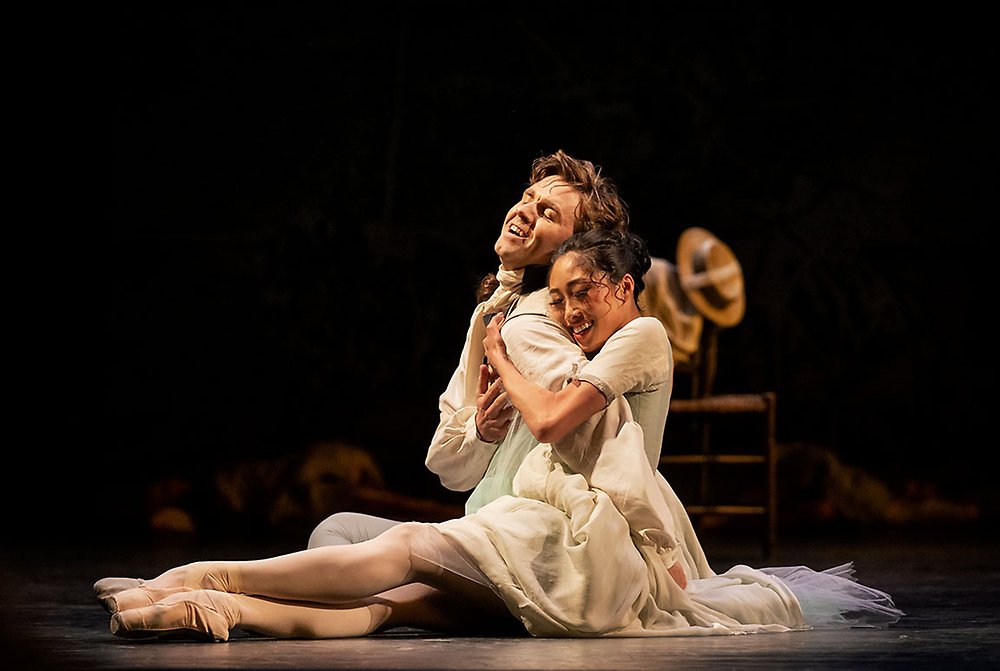
Manon: An evening to treasure
Kenneth MacMillan’s Manon created in 1974, continues to weave its magic providing a slew of dramatic roles against a volatile and violent backdrop. The Royal Swedish Ballet first presented the ballet ...
-
Instudering av Mats Eks ”En slags” med Staatsballett Berlin
I april 2022 reser Koreografen Mats Ek och jag till Berlin för att hålla audition med dansarna vid Staatsballett Berlin på Deutsche Oper. Vi ska välja dansare till verket ”En slags” av Mats Ek. Premiä...
-
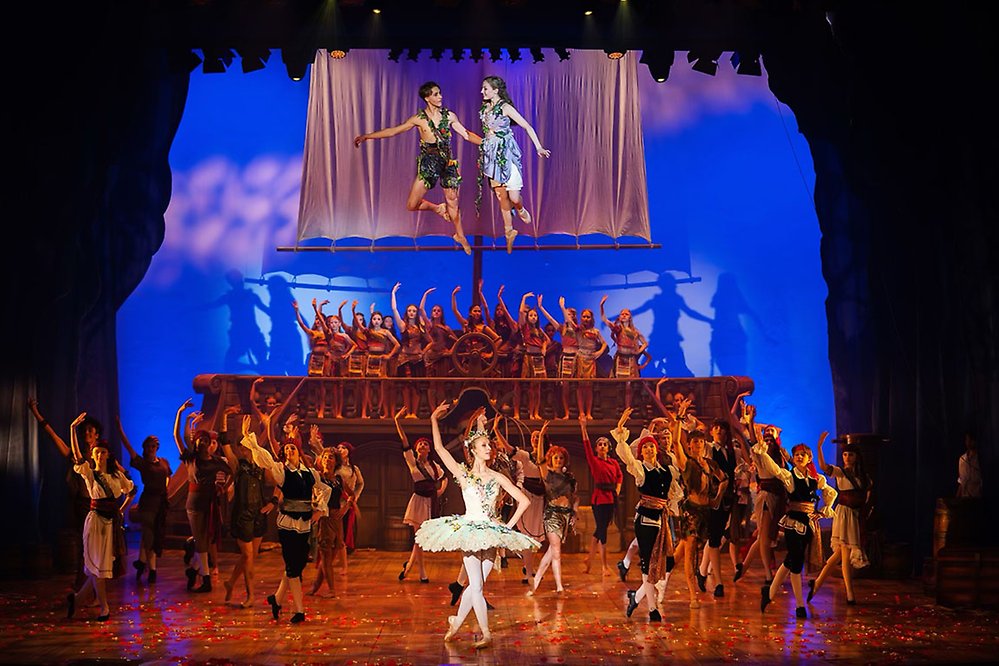
Marianne Mörck berättar sagan om Peter Pan med Svenska Balettskolan
Till vårens uppsättning av Peter Pan och Wendy på Lorensbergsteatern är en av gästartisterna ingen mindre än Marianne Mörck . Efter första repetitionen tillsammans med baletteleverna på svenska baletts...
-
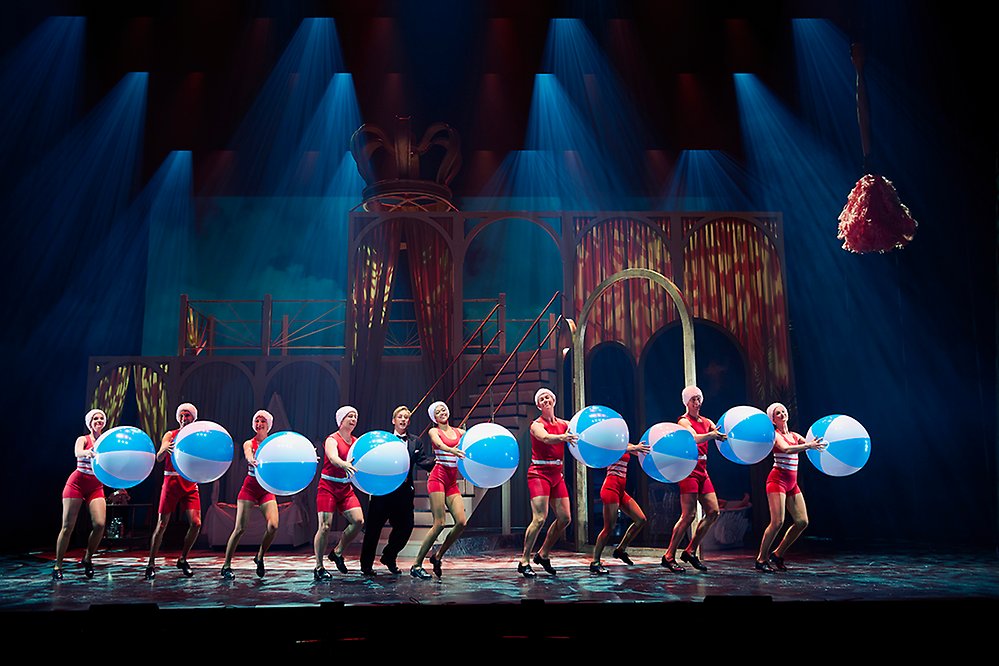
Det var en gång på Grand Hôtel, musikalen som återupptäckts
Göteborgsoperan avslutar sin vårsäsong med premiär den 22 april på Paul Abrahams musikal Det var en gång på Grand Hôtel. Musikalen som legat gömd fram till 2017. En föreställning fylld av dans och mus...
-
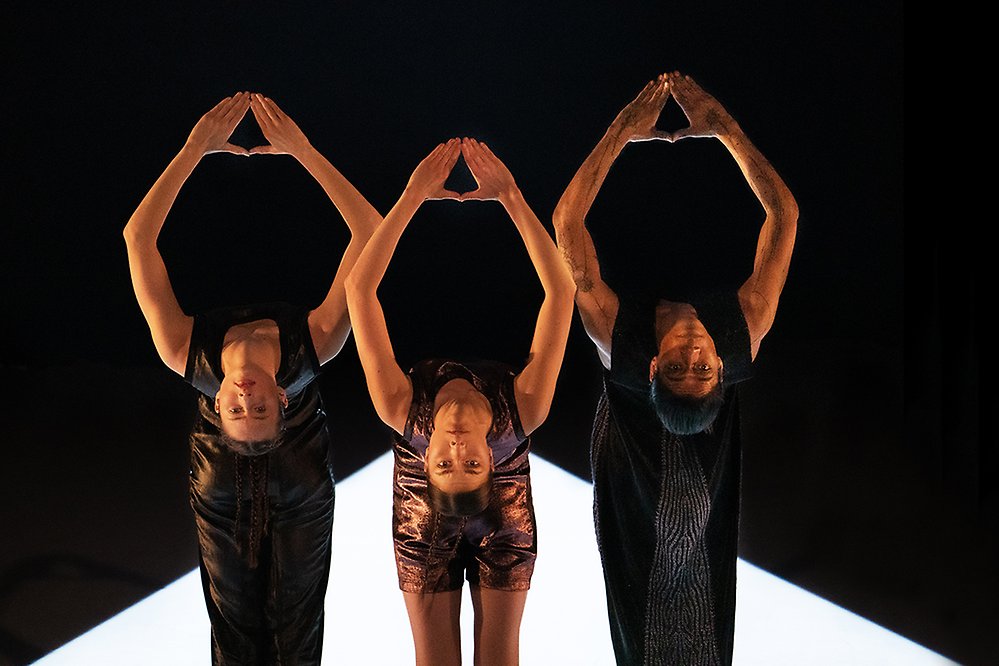
Virpi Pahkinen: "Precision möter osäkerhet, matematik möter mystik"
Change – den nya dansföreställningen av och med Virpi Pahkinen – är uppbyggd enligt principen 5 + 5 + 5, dvs koreografi/ljus/musik. Strax före fredagskvällens premiär på Kulturhuset Stadsteatern fick ...
-
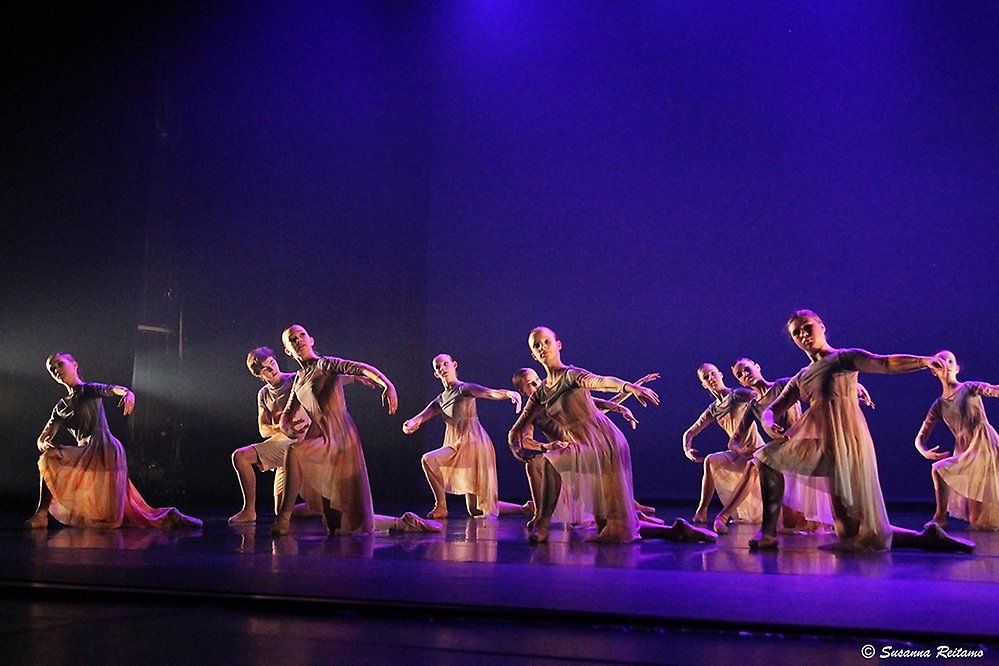
För dansens skull dansas Pro Dance galan
Den anrika Aleksandersteatern fylldes åter av dansfolket som ville stödja dansen och dess utövare via föreningen Pro Dance med att köpa biljetter till den årliga galaföreställningen. Artisterna uppträ...
-
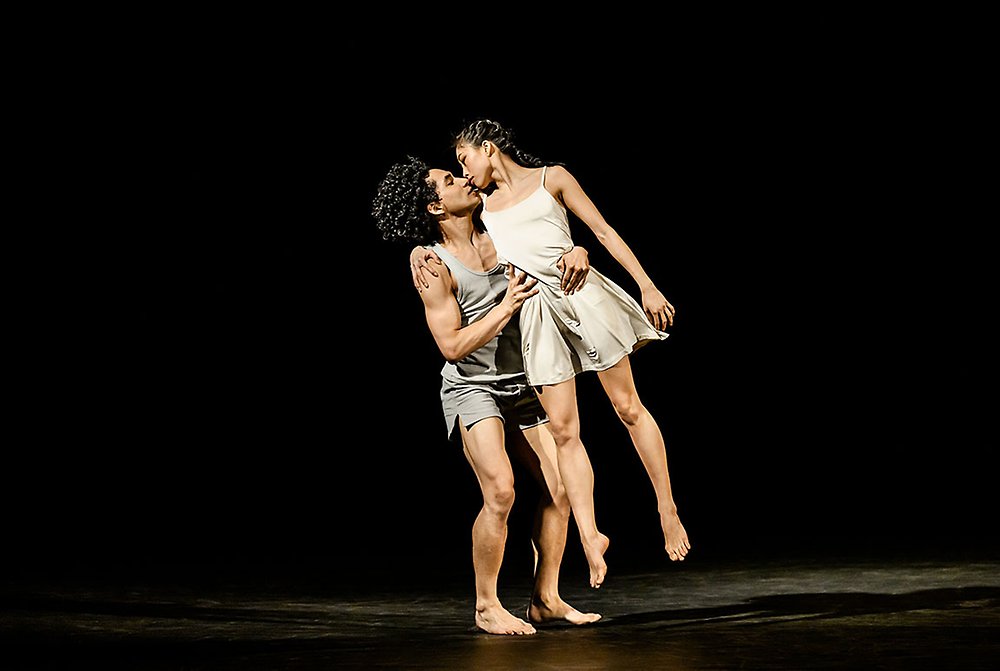
Anthony Lomuljo – om hur det är att igen dansa Romeo – 10 år senare
10 år har gått sedan urpremiären av Mats Eks Julia & Romeo på Kungliga Operan i Stockholm. Då liksom nu dansar Anthony Lomuljo rollen som Romeo. När Dansportalen några dagar innan premiären träffar An...
-
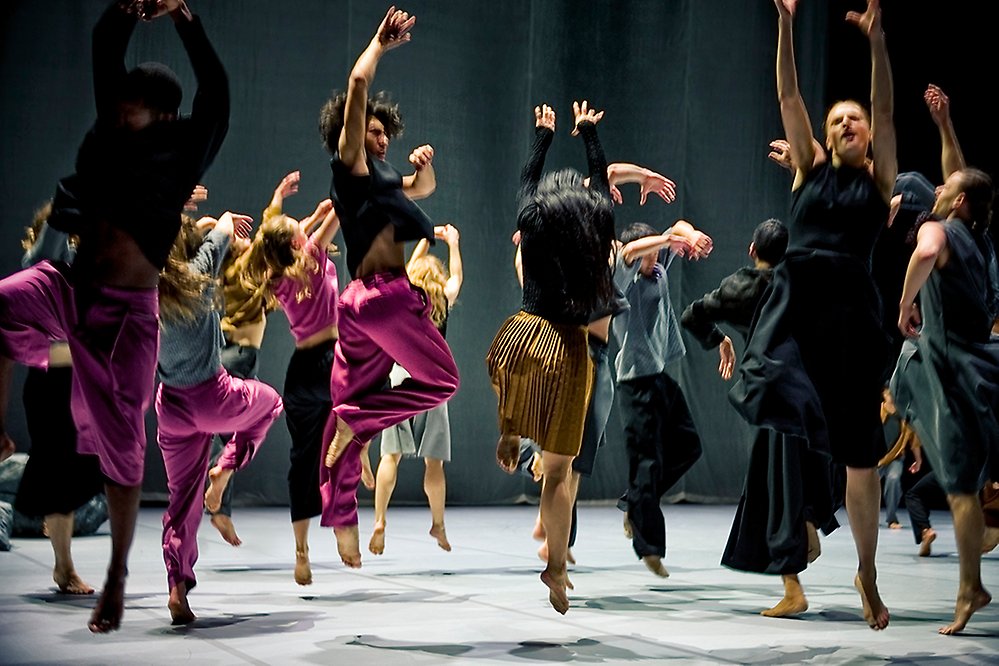
Hur bygger vi upp oss själva igen när allt är förstört–Johan Inger om Dust and Disquiet på Göteborgsoperan
Danskvällen Touched visar två världspremiärer på Göteborgsoperan, Dust and Disquiet av Johan Inger och To Kingdom Come av det nederländska syskonparet Imre och Marne Van Opstal . Naturkatastrofer runt ...
-
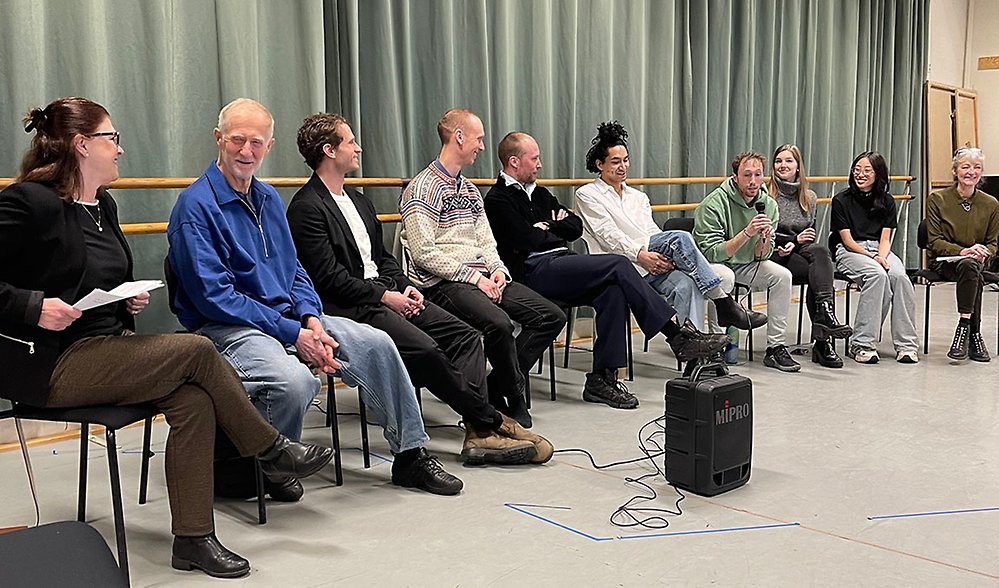
Mats Ek om Mats Eks Julia & Romeo
Operans Balettklubb gästades lördag 25 mars av koreografen Mats Ek och dansare inför nypremiären av ”Julia & Romeo” på Kungliga Operan. Verket uppfördes på teatern för första gången 2013. Det har ocks...
-
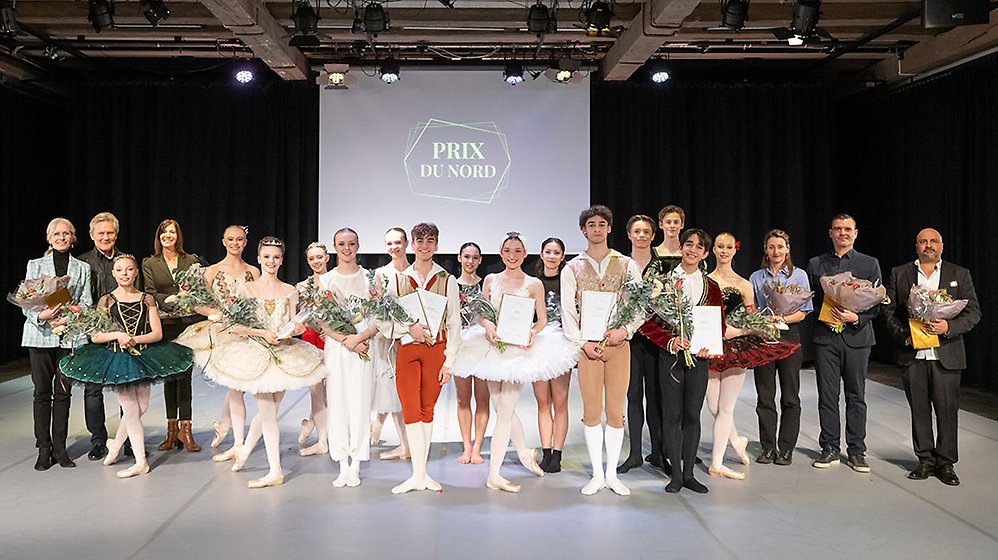
Nordens största danstävling lockade 44 dansare
Äntligen! Det är vad de flesta kände när tävlingen Prix du Nord genomfördes på Kronhuset i Göteborg.
-
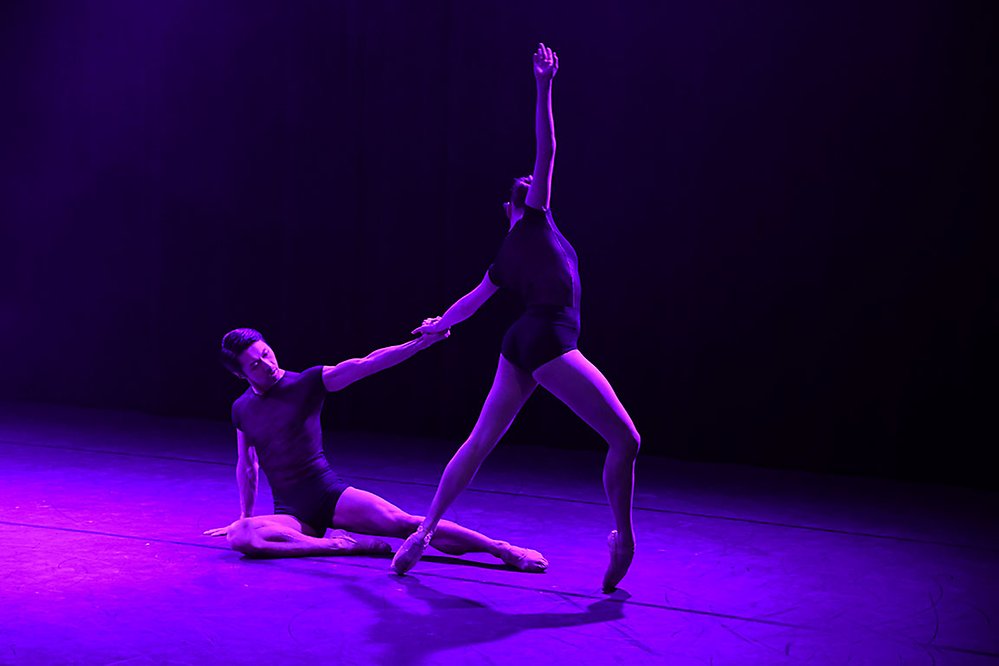
Young choreographers en bra plattform för nya idéer
En alldeles särskild glädje med workshopartade föreställningar är att man får se dansarna på riktigt nära håll. Så var fallet på Operans Rotunda 16 och 18 mars, i ett program med sju koreografer och 3...
-
%20Agathe%20Poupeney%20OnP%20-BONP-D%C3%A9fil%C3%A9.jpg)
Gala till minne av den lysande dansaren Patrick Dupond
Under februari var det tre utsålda galor på Palais Garnier i Paris, till minne av dansaren och balettchefen Patrick Dupond . För programmet på galan, se nedan!
-
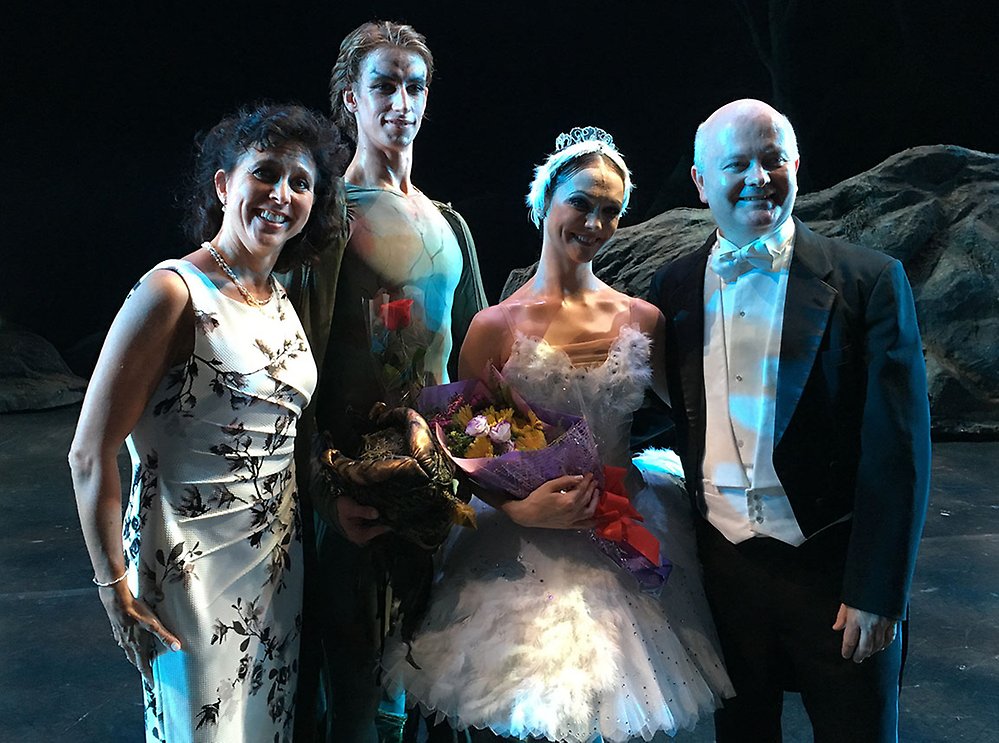
Madeleine Onne: Man får slåss för sin konstart
Madeleine Onne har varit balettchef i Stockholm, Hongkong och Helsingfors. Dansportalen har pratat med Madeleine om bland annat tiden i Hongkong, Helsingfors och om Stockholm 59°North. Men på vår förs...
-
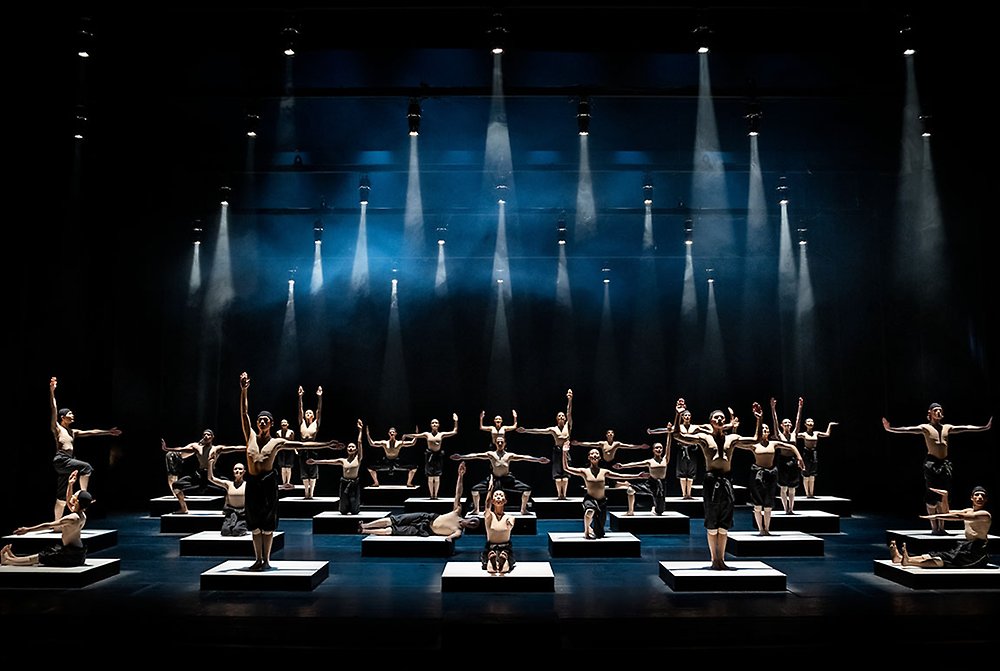
Triple Bill at the Ballet. What's not to Like?
The feel-good factor was in abundance at the Royal Opera House in Stockholm with a triple bill to send the audience home with a smile.
-
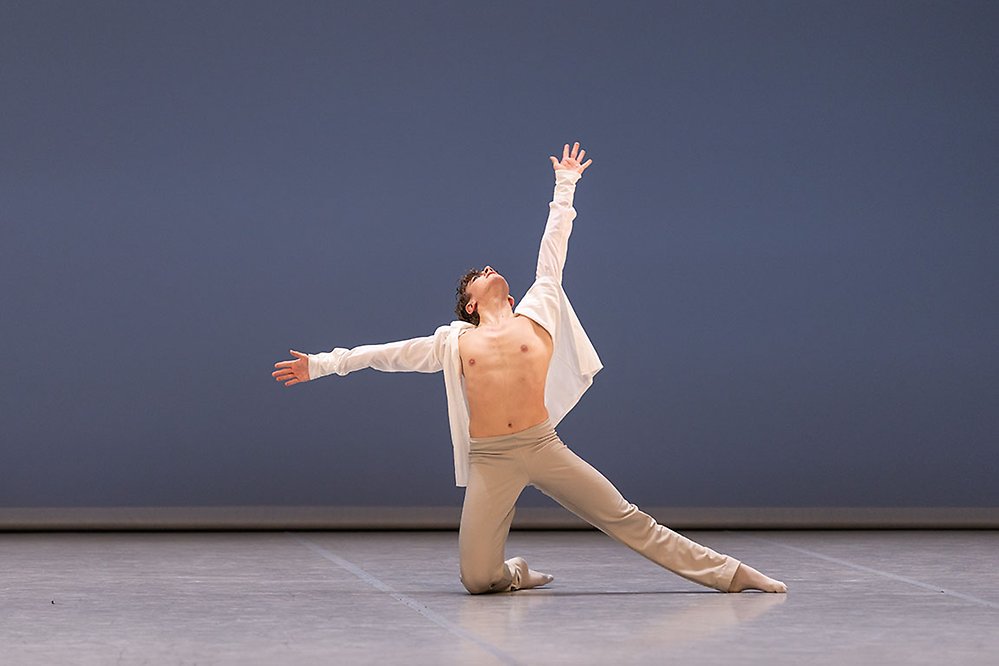
Elever från Kungliga Svenska balettskolan tävlade i årets Prix de Lausanne
Sveriges kandidater i Prix de Lausanne kommer båda två ifrån Kungliga Svenska balettskolan. Theodor Bimer och Alexander Mockrish. Tävlingen firar 50 årsjubileum lite sent då pandemin stoppat ett flert...
-
.jpg)
12 songs + Ane Brun och Kenneth Kvarnström på Göteborgsoperan
Första helgen i februari är det premiär för 12 songs + på Göteborgsoperan. Ett scenkonstverk skapat genom samarbete mellan 18 dansare och en av Nordens främsta koreografer, Kenneth Kvarnström, i något...
Notiser
- Den andra halvan av drömmen – måndag 29 april kl. 19.00
- Nu finns en danskalender på Dansportalen
- Nytt regionalt center för dans byggs i Mölndal
- Kungliga Operan stänger i fem år från juli 2026
- Premiärdansaren Frans Valkama har tilldelats Edvard Fazer pris av Suomen Kulttuurirahasto (The Finnish Cultural Foundation)
- Kulturnatt Stockholm
FÖLJ OSS PÅ
-
Kreativ lyskraft hos GöteborgsOperans Danskompani
GöteborgsOperans danssäsong 2024/2025 blir en virtuos upplevelse med kreativ briljans. Strålkastarljuset riktas mot starka kvinnliga röster och det blir både raffinerade ...
-
Dansarna berör på djupet med sin dansade kyss
Sommaren 2022 turnerade Don't, Kiss .Skånes utomhus i Skåne och Köpenhamn. 23 mars 2024 får föreställningen nypremiär på Skånes Dansteater, denna gång som inomhusverk med...
-
Yoann Bourgeois tillbaka till Göteborgsoperans Danskompani med ett sant styrkeprov
Efter fyra år är det dags igen för den franske koreografen Yoann Bourgeois att återvända till Göteborgsoperans danskompani. Denna gång för verket We loved each other so m...
-
Spot on Darrion Sellman – dancing the leading role Siegfried in Swan Lake
In August last year Darrion Sellman arrived to Stockholm and joined the company. Darrion says: “It has been a change to come to Stockholm. A vibrant city, small but calme...
-
Kalle Wigle nyutnämnd solist vid Staatsballett i Berlin
Dansportalen gratulerar svenske dansaren Kalle Wigle som nyligen utnämnts till solist vid Staatsballett i Berlin.
-
Succéduo skapar nytt efter segertåg i Sverige och Europa
Intervju Hugo Therkelson och Tobias Ulfvebrand
ANNONS
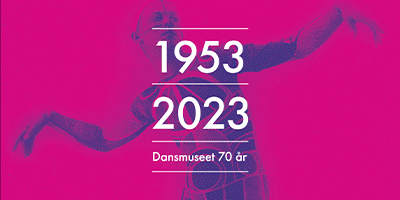
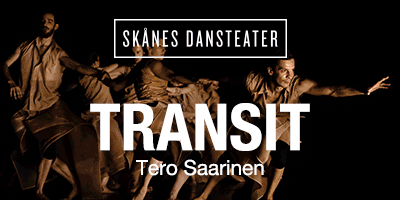
Ur Dansportalens arkiv
-
Nurejevs Svansjön på Stockholmsoperan – en version aldrig tidigare spelad i Sverige
Inför Kungliga Balettens premiär på Svansjön i koreografi av Rudolf Nurejev gästades Operans Balettklubb av iscensättaren Charles Jude och dansaren Calum Lowden.Charles J...
ANNONS
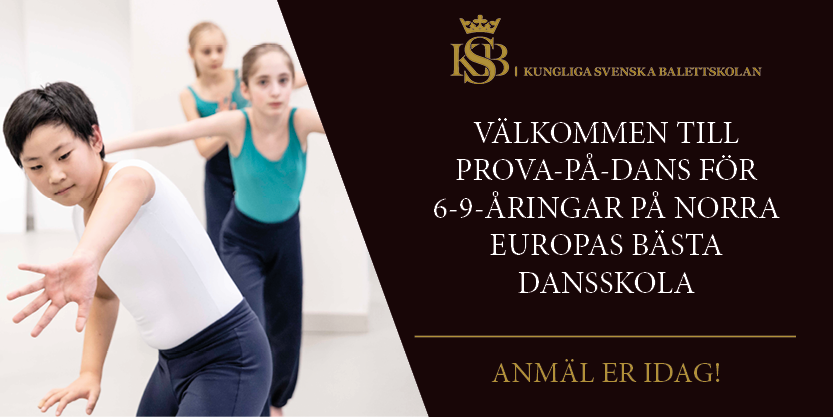
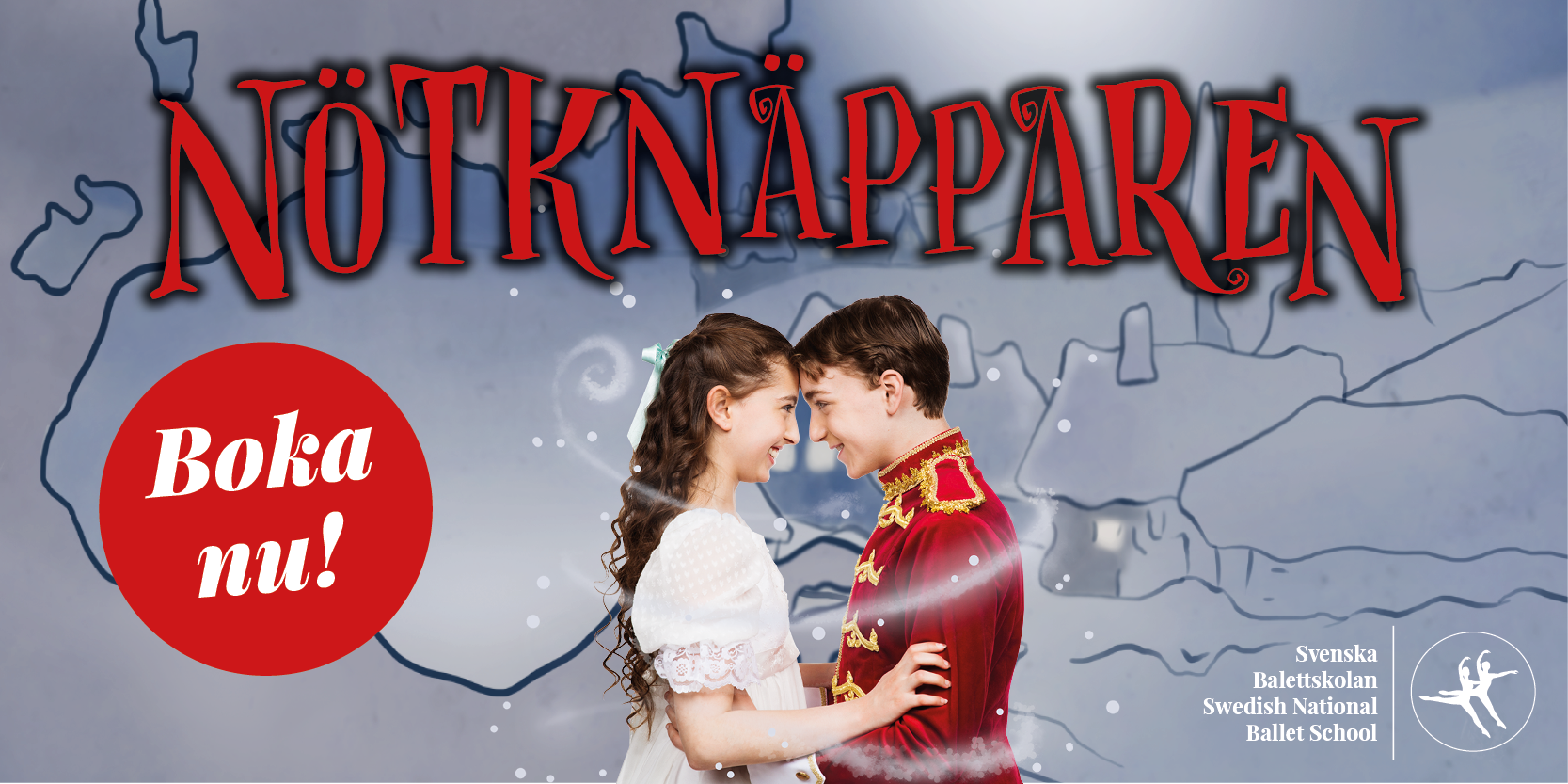
-
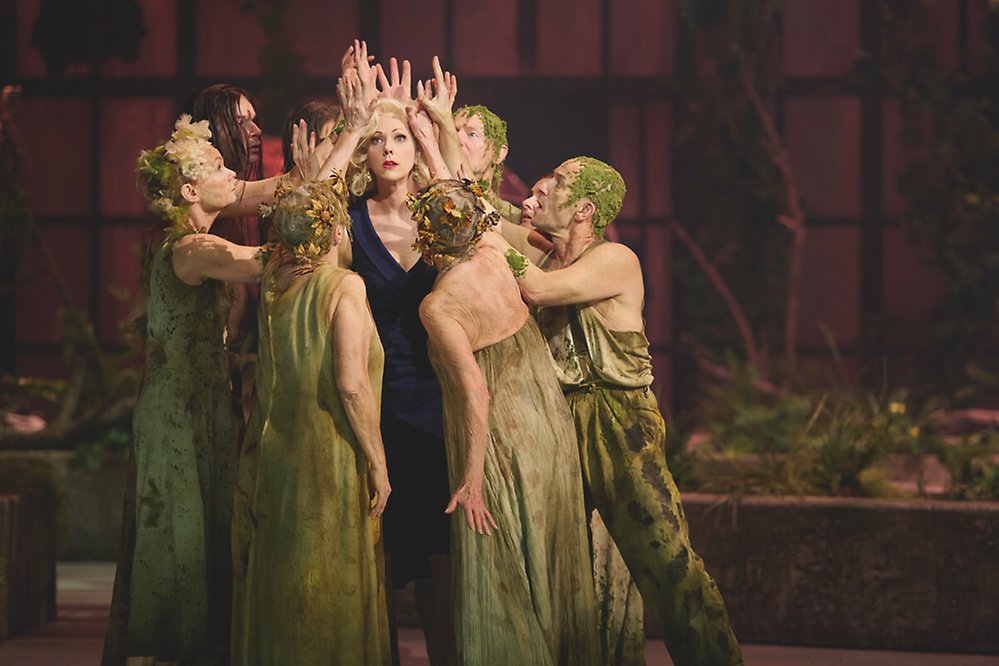
40 år senare: En dansares triumf över tidens utmaningar
-
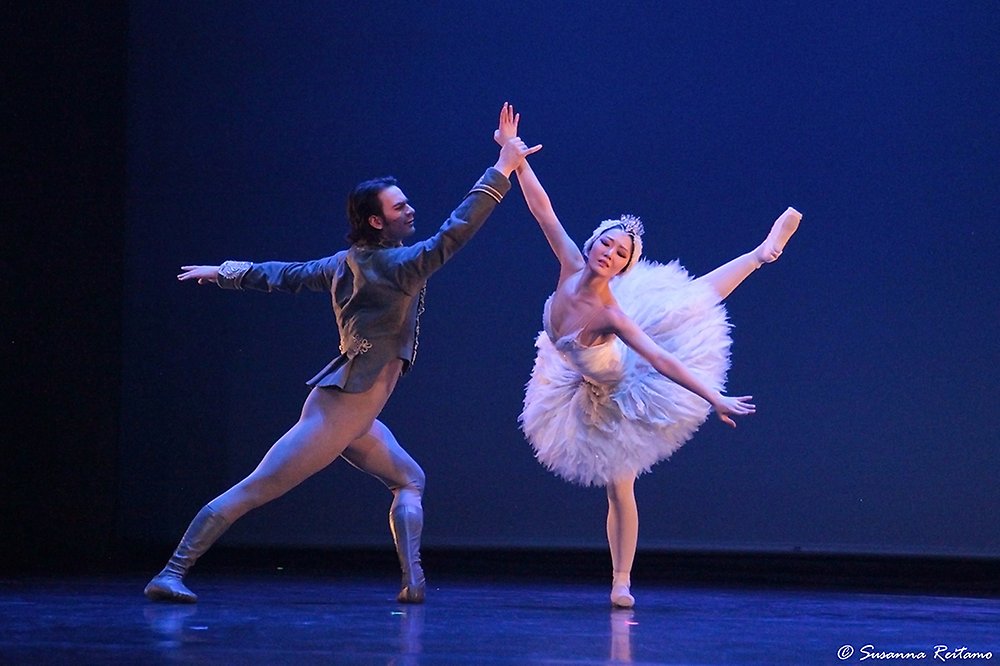
Fart och kunnande på Pro Dance Galan 2024
-
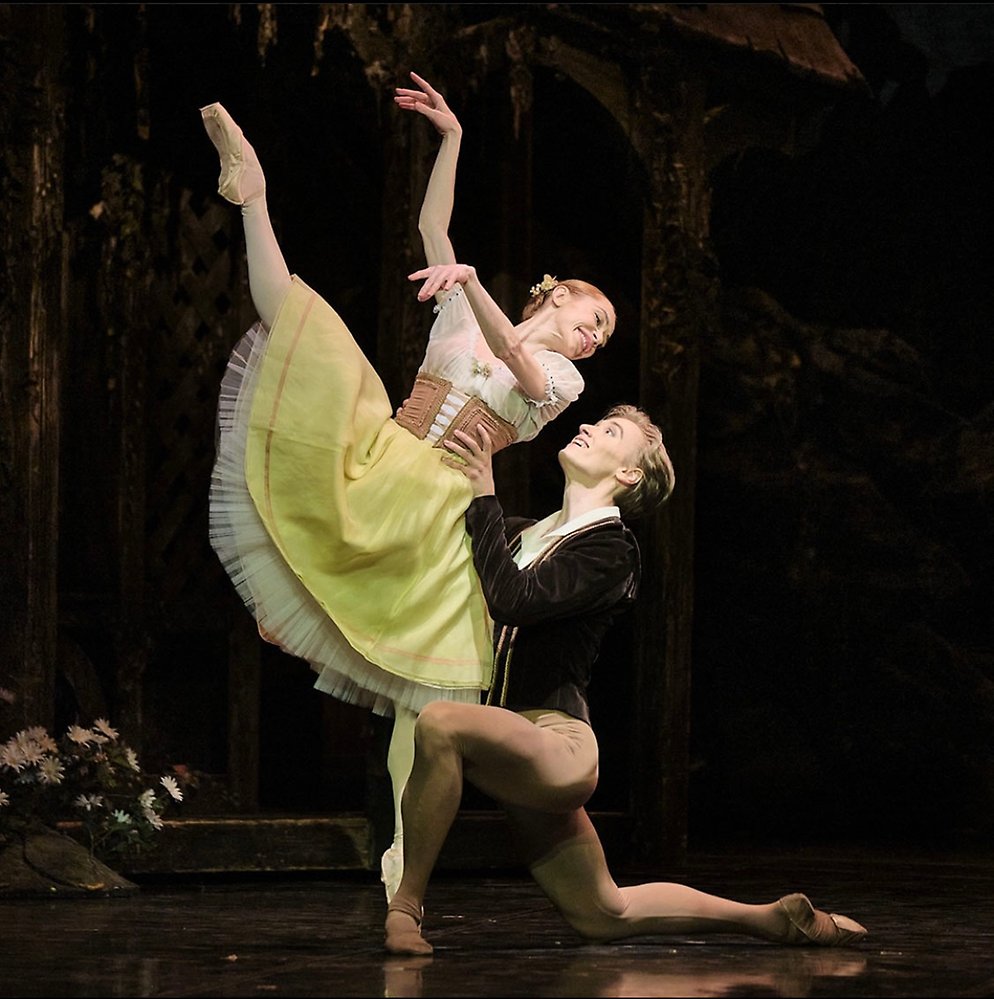
Svenske dansaren Kalle Wigle har stora framgångar i Berlin
-
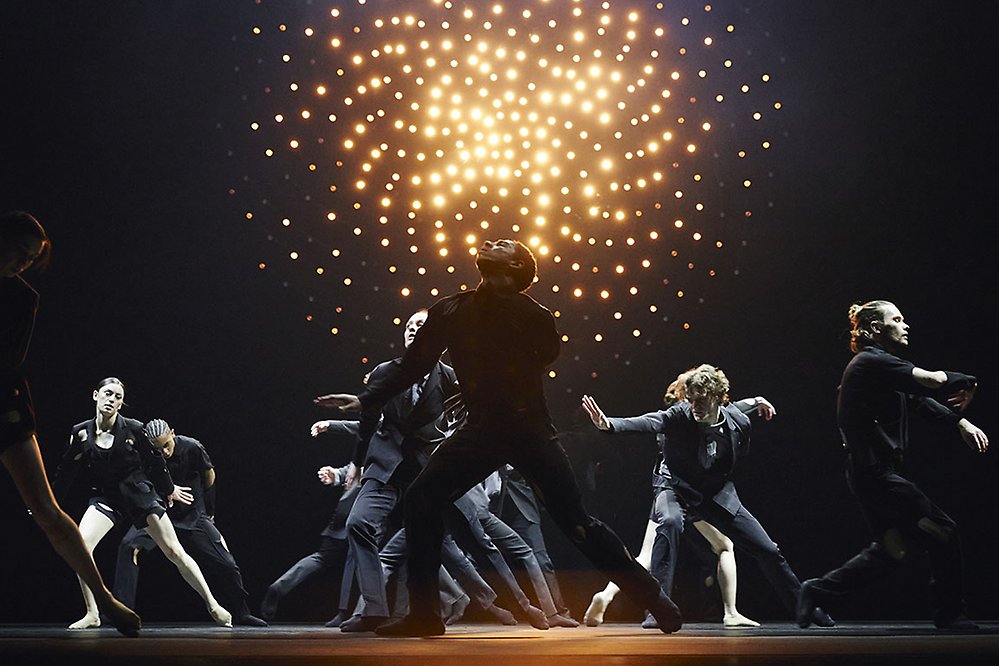
Timulak/Portner två olika verk men med flera beröringspunkter
-
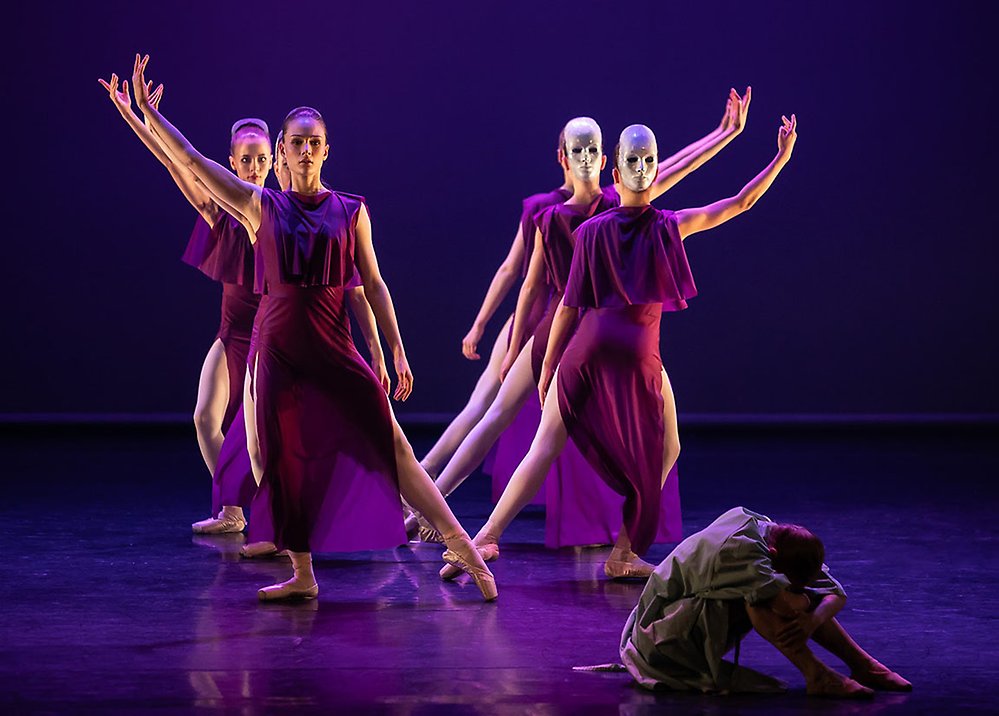
På jakt efter det fullkomliga: nationens skickligaste dansare och – smultron!
-
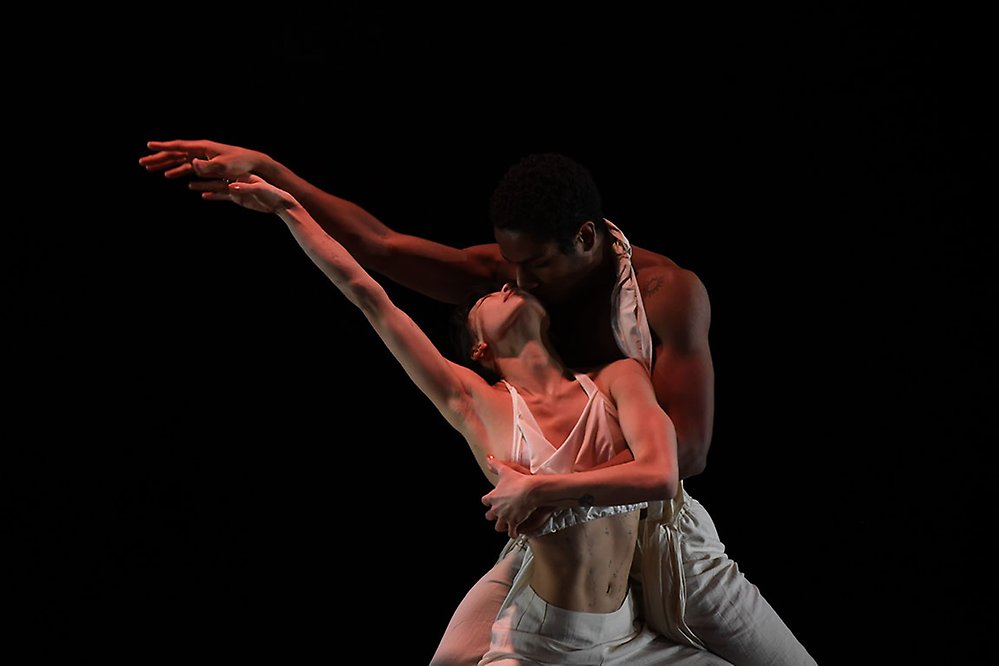
Young Choreographers en föreställning där dansare från Kungliga Operan koreograferar
-
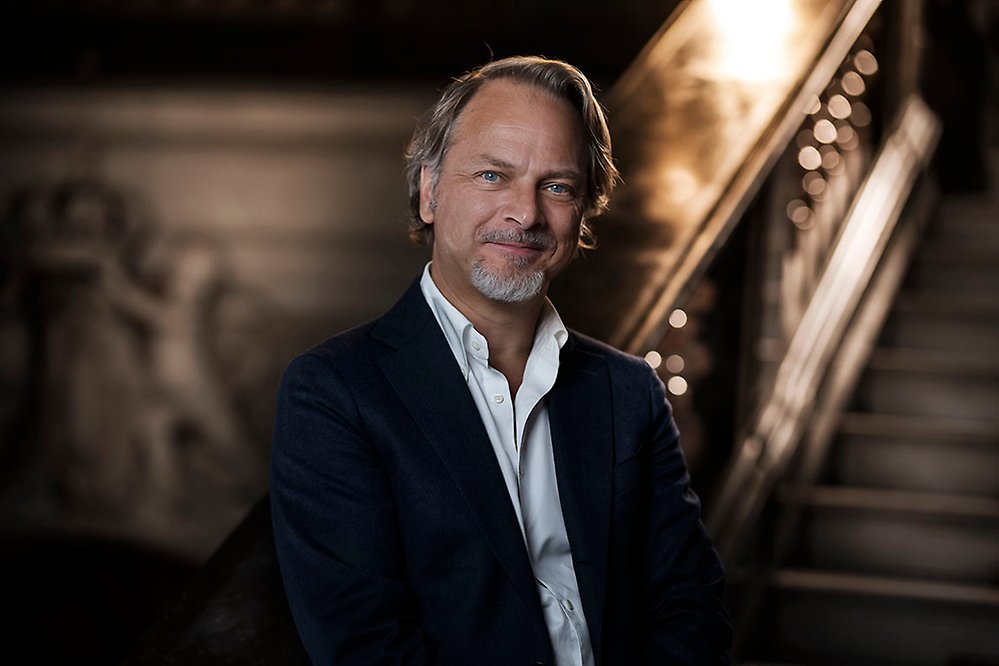
Operans VD Fredrik Lindgren: På sikt vore det fantastiskt att få ett nytt Operahus i Stockholm
-
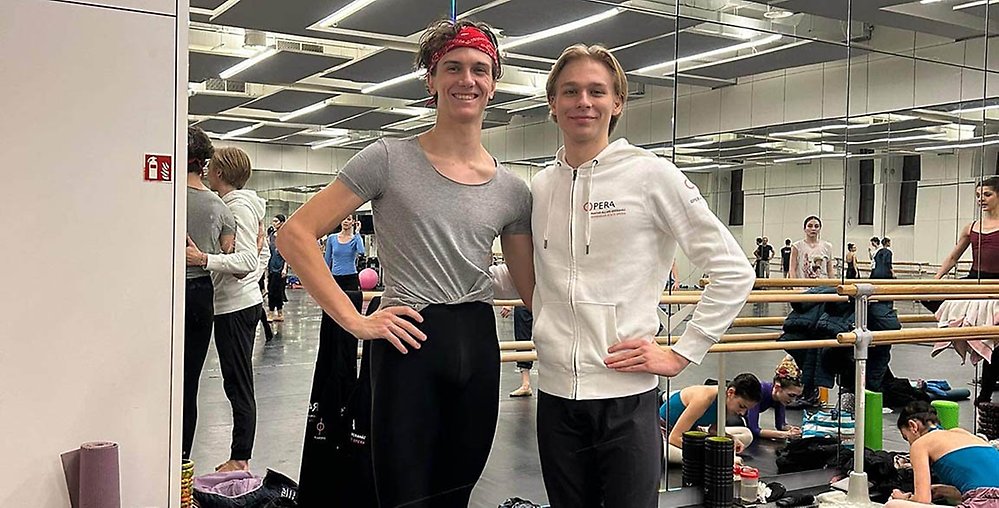
Från Svenska balettskolan i Göteborg till ungerska Statsoperan i Budapest
-
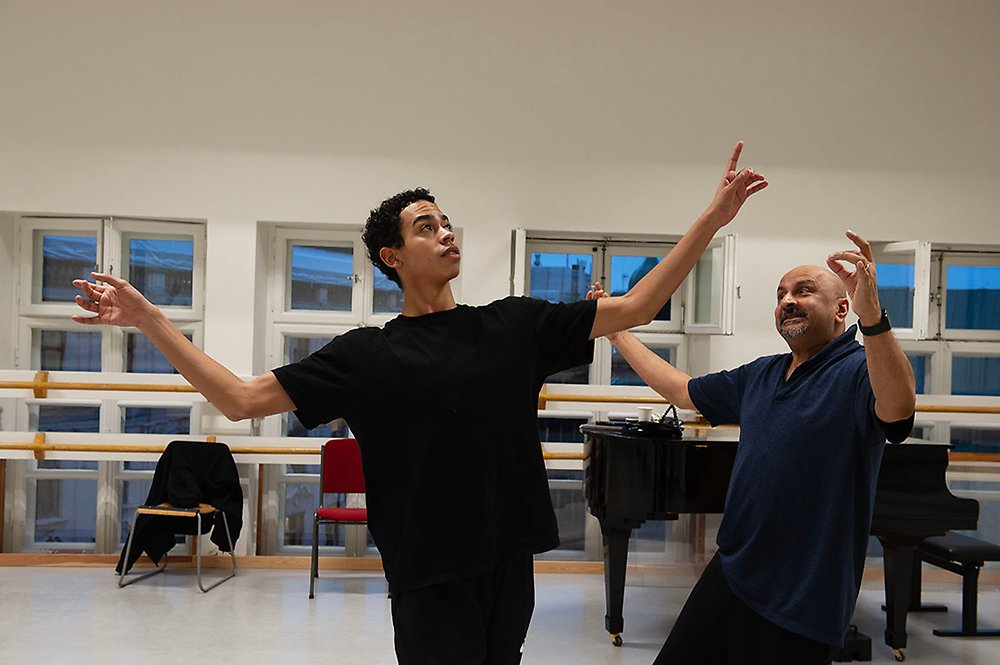
Joseph Sturdys verk Lucid Episode inleder nyårsgalan på Kungliga Operan
-
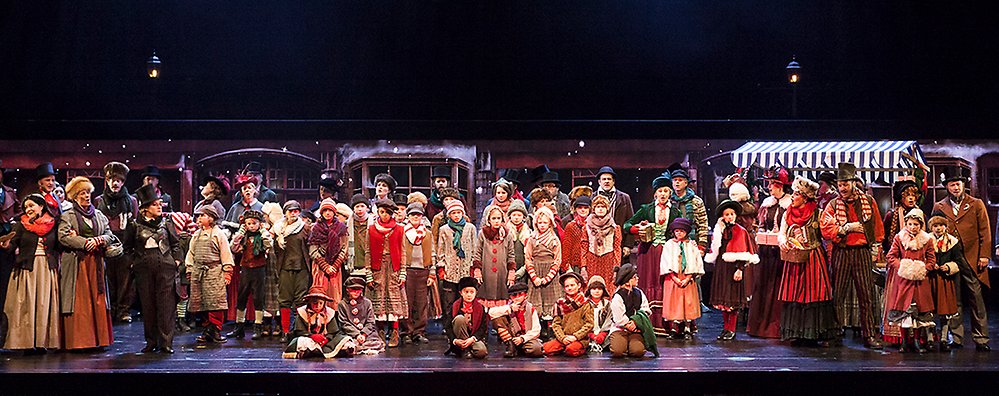
Göteborgsoperan sjunger in julen med En Julsaga
-
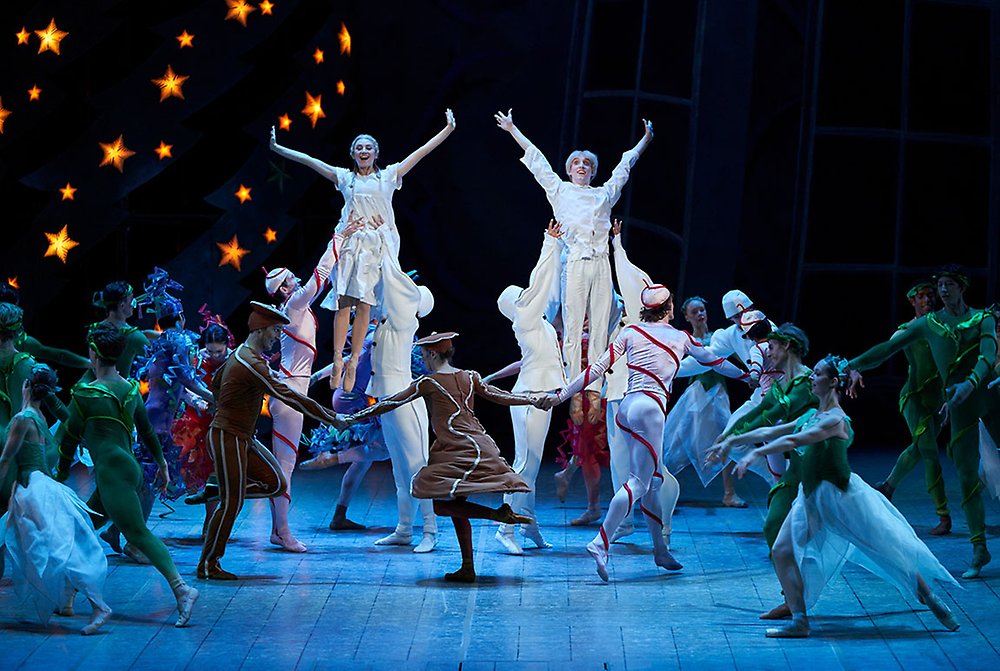
Nötknäpparen, nypremiär på Kungliga Operan i Stockholm efter fyra års uppehåll
-
Giovanni Bucchieri – en konstnärlig kameleont
-
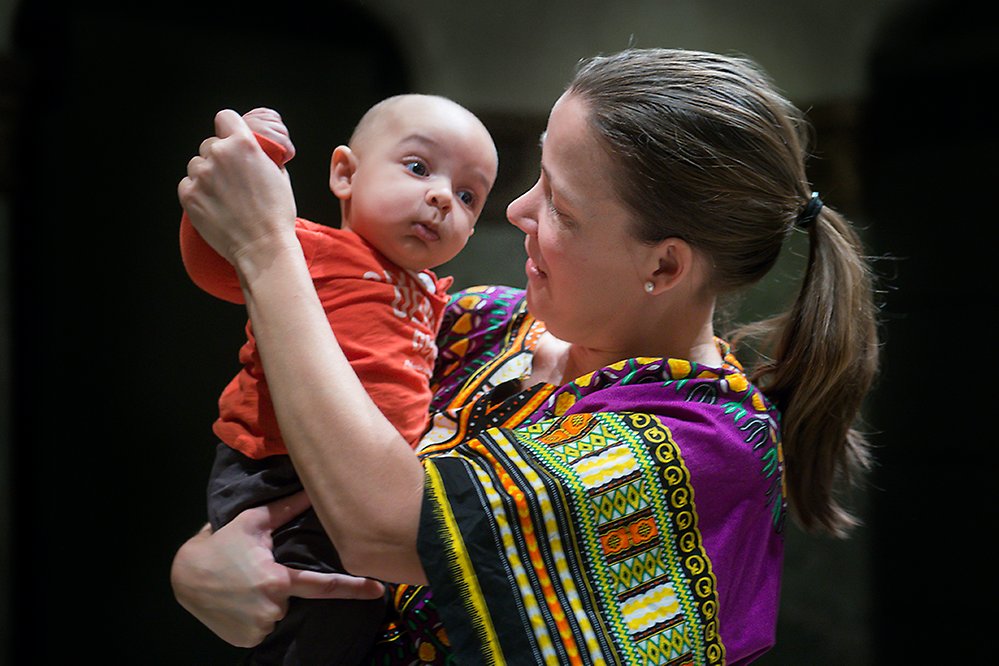
”Mycket talar för att vi inte kommer att kunna vara kvar där vi är nu,” säger Hans Lindholm Öjmyr, ny chef för Dansmuseet
-
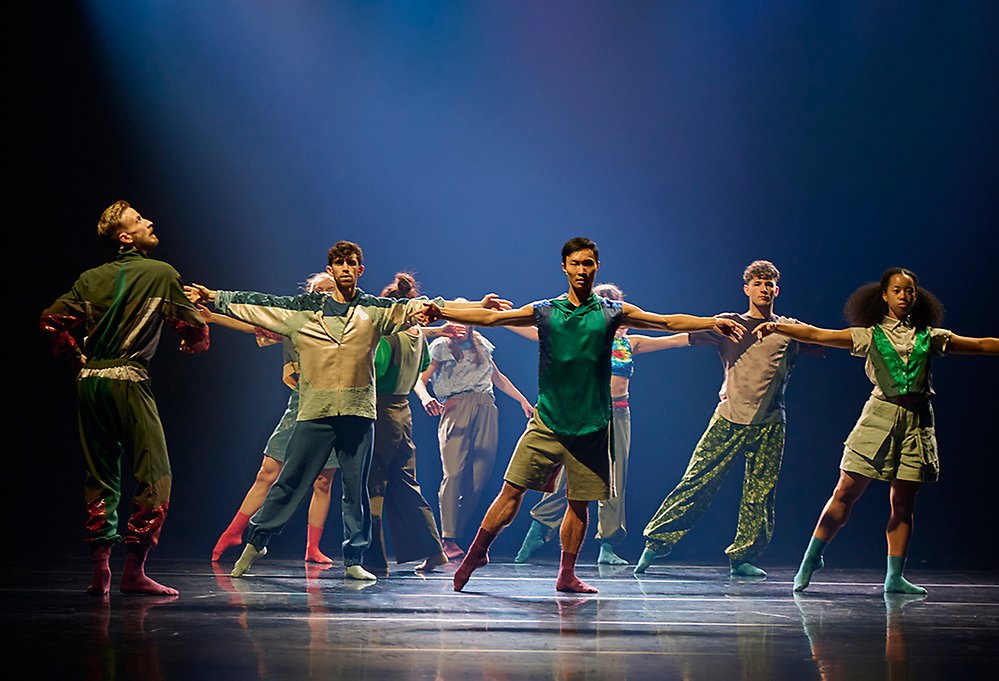
In a heartbeat, ny världspremiär på Göteborgsoperan
-
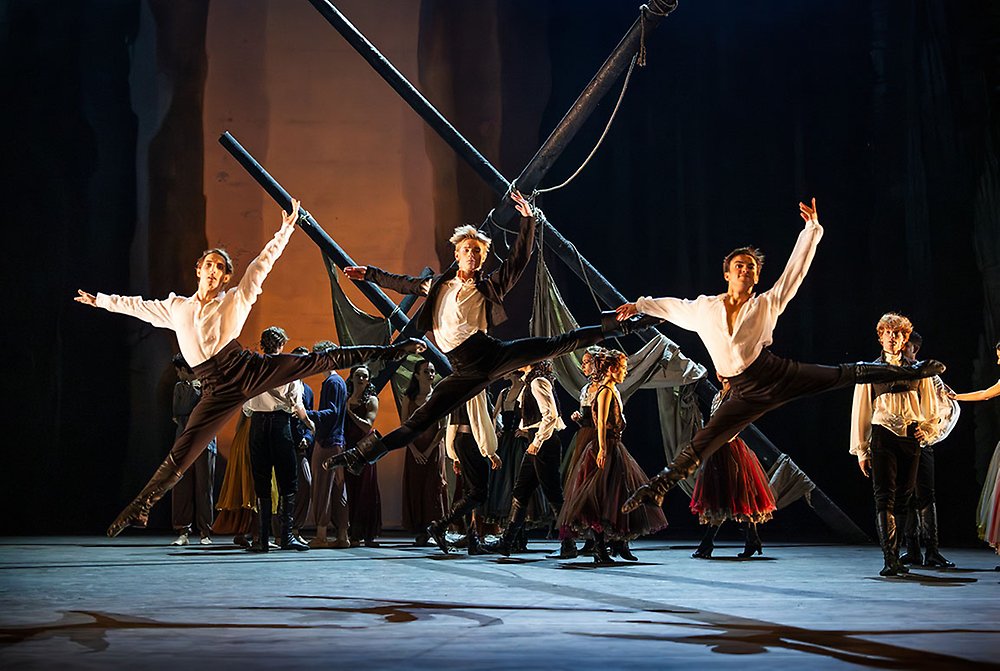
Le Corsaire, svensk premiär på Kungliga Operan med virtuos dans och teknisk skicklighet
-
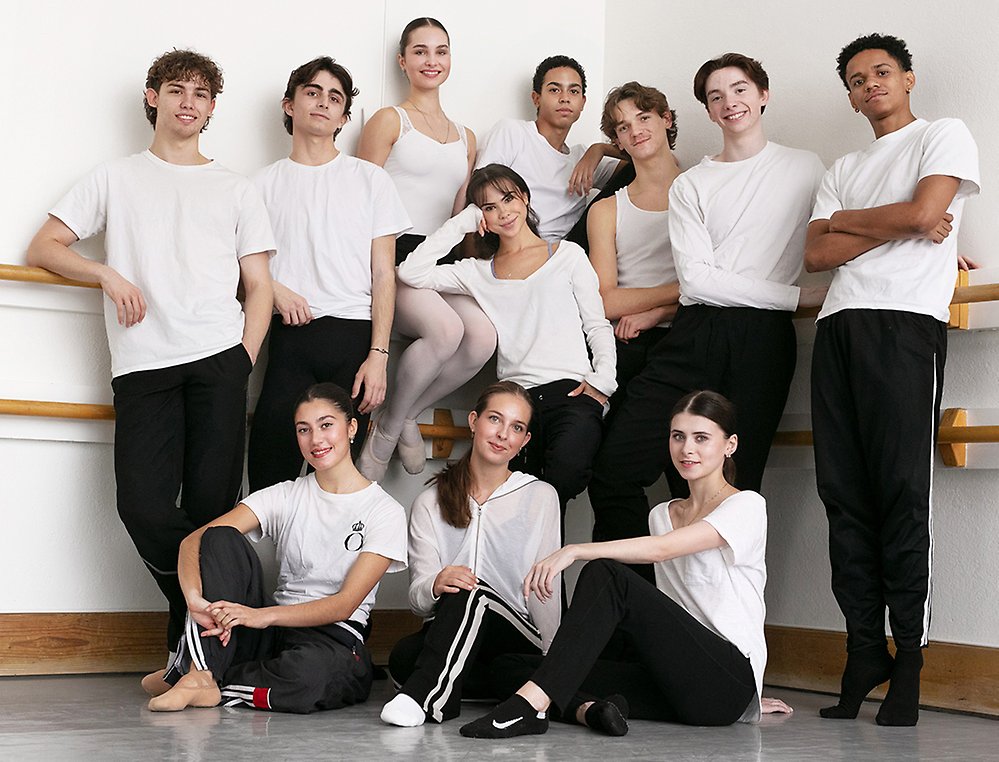
New talents join the Royal Swedish Ballet
-
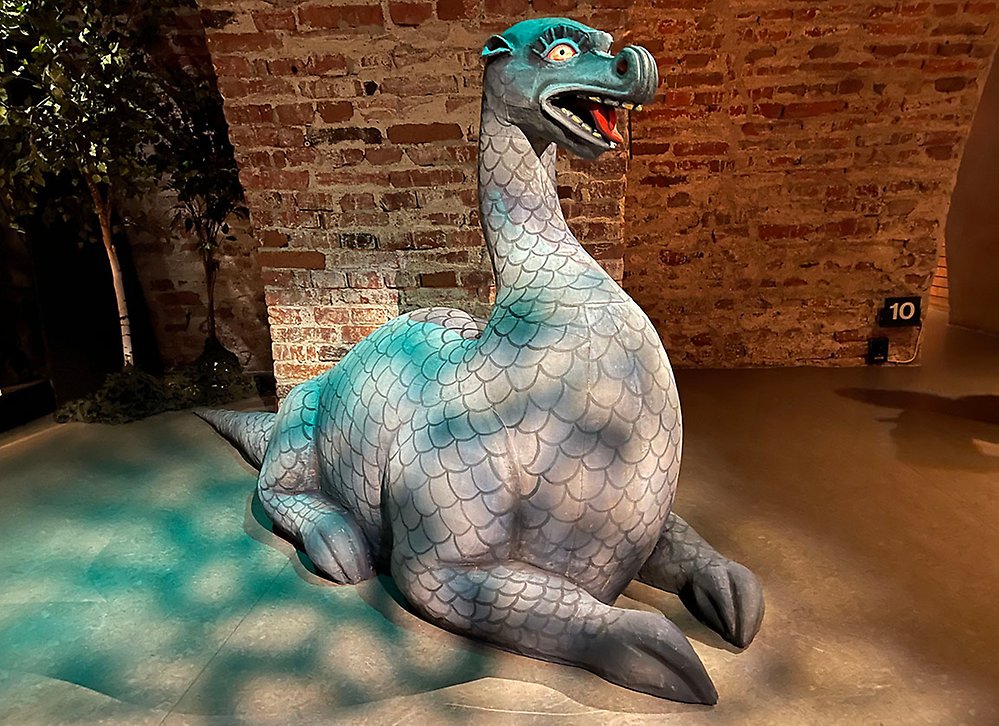
Där låg onekligen ett skimmer över Gustavs dagar
-
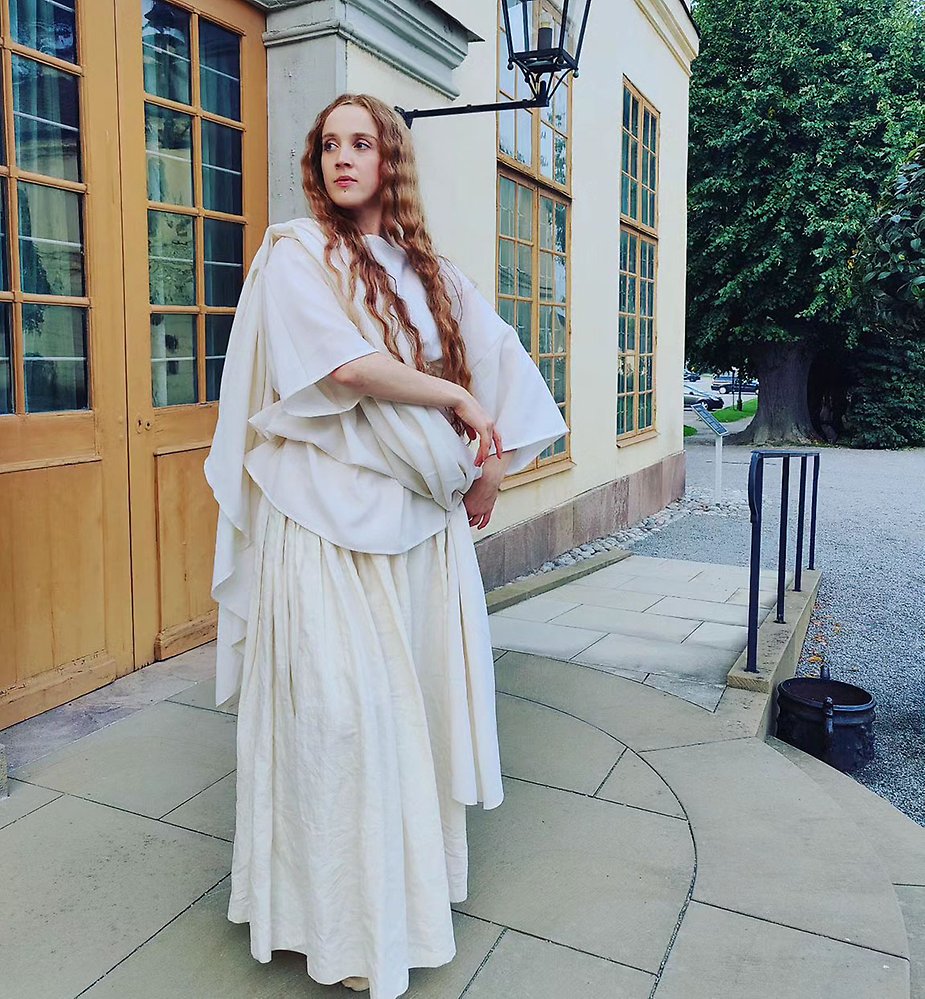
Attityder som uppskattades
-
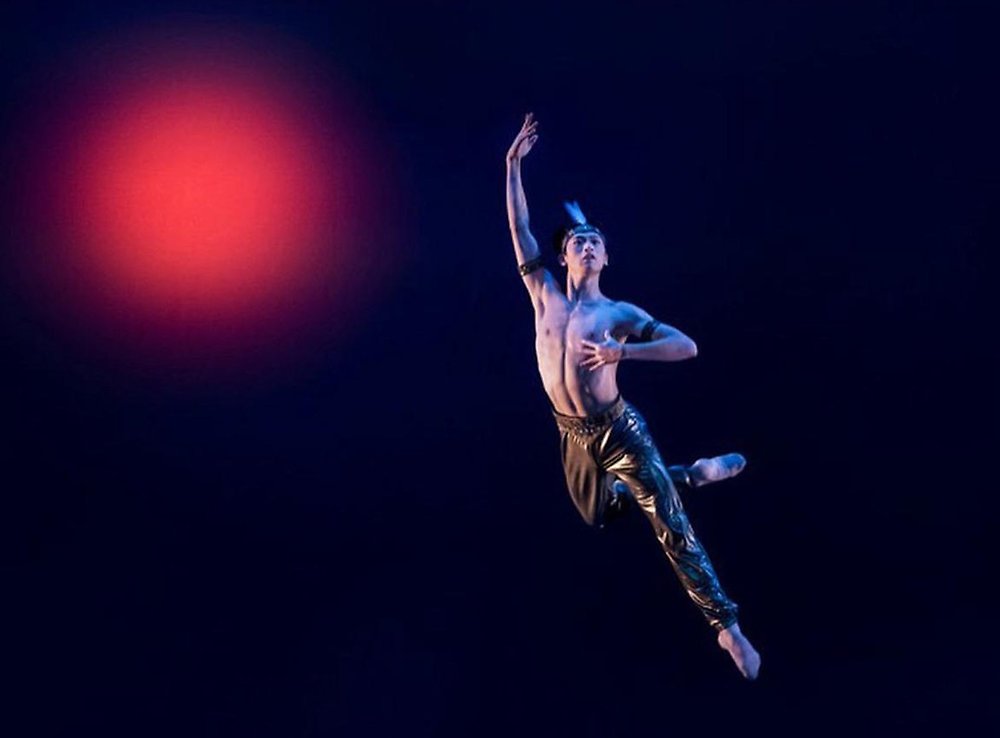
Spot-on Kentaro Mitsumori, dancer with the Royal Swedish Ballet
-
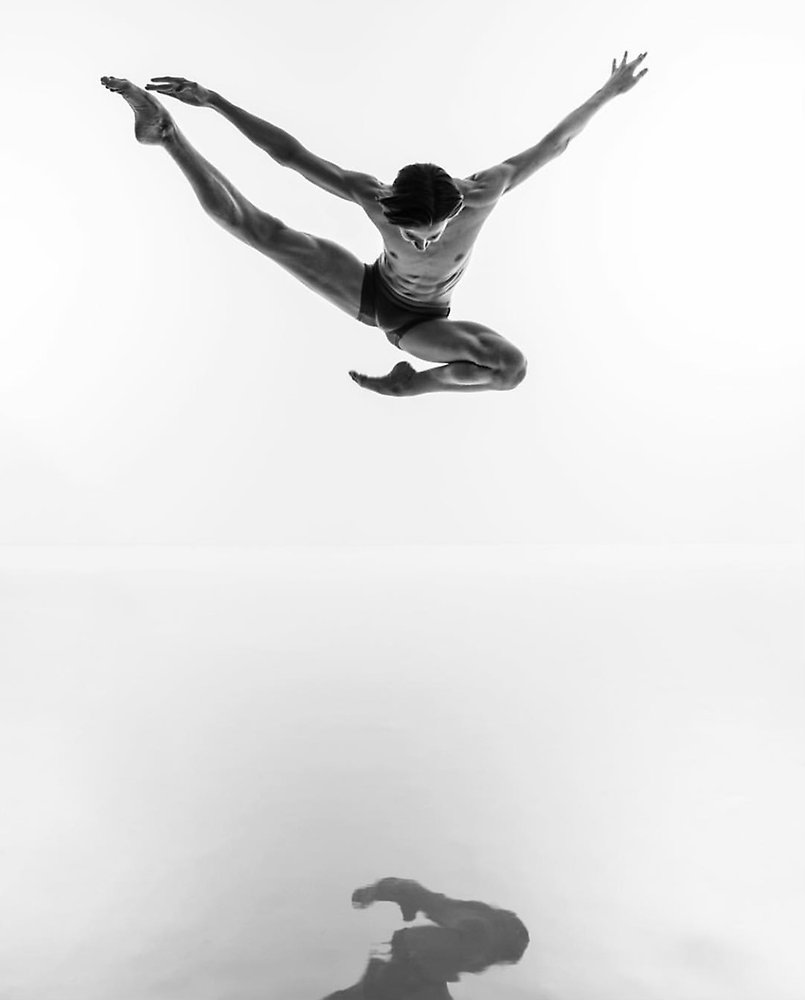
Kalle Wigle-Andersson får stipendium från Jubelfonden
Redaktion
dansportalen@gmail.com
Annonsera
dansportalen@gmail.com
Grundad 1995. Est. 1995
Powered by
SiteVision





